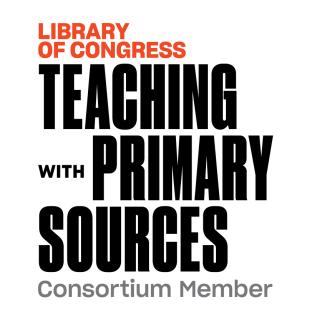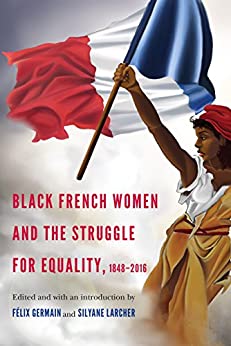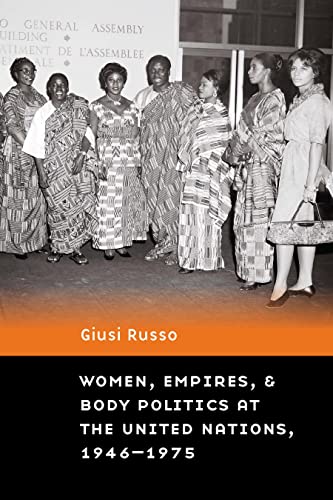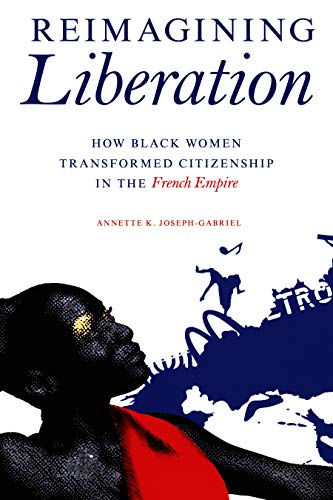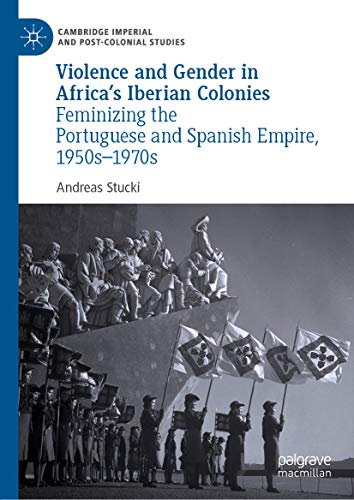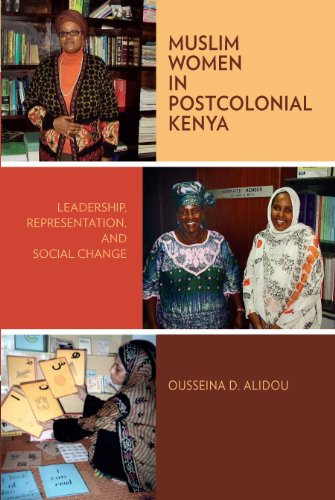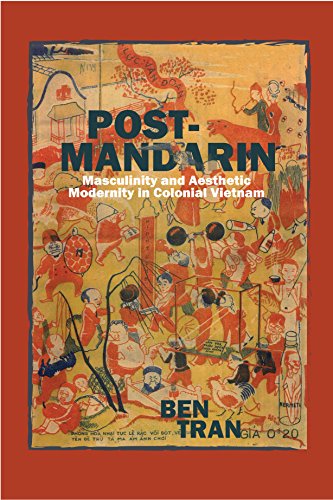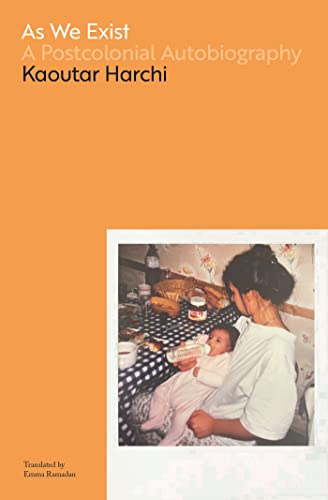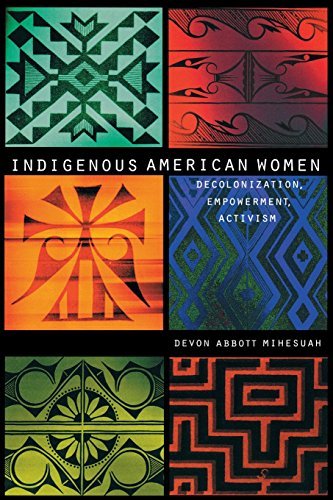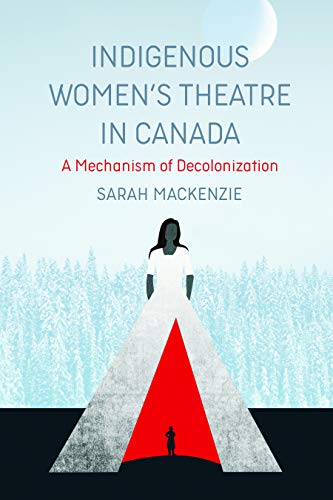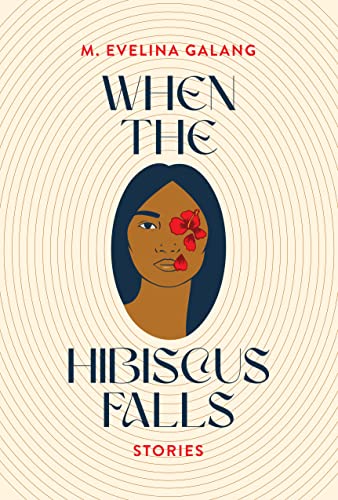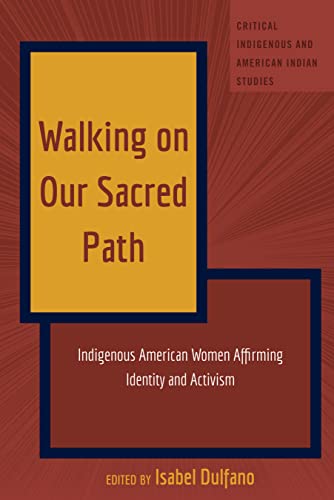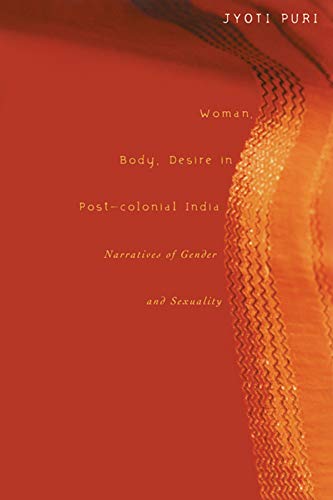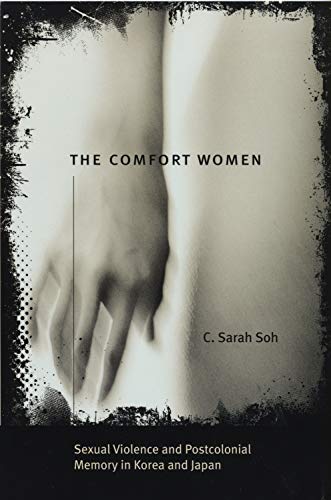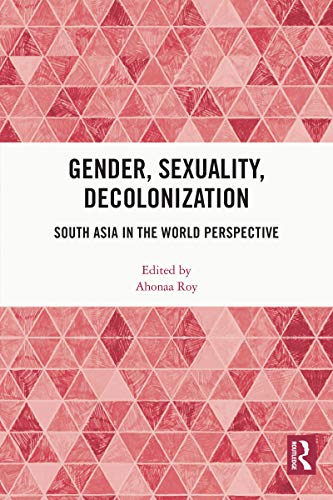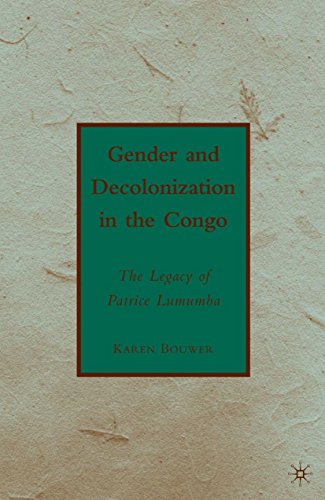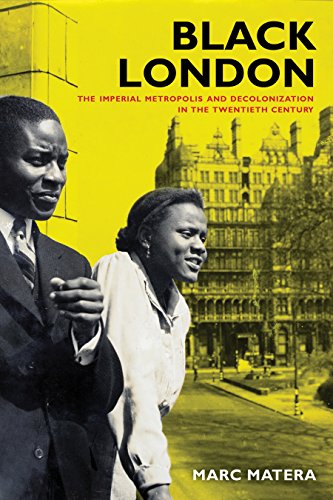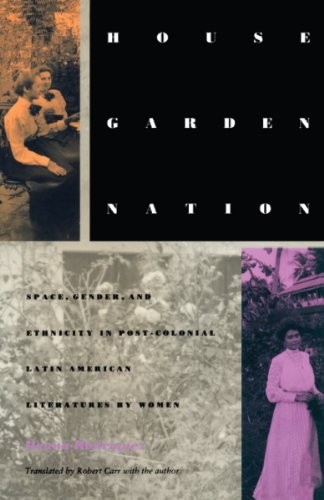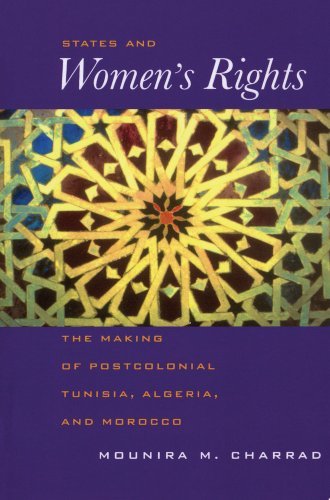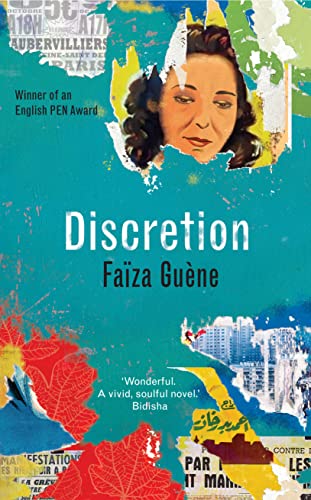29. 1950-1990 Transnational Feminism
|
In the last third of the 20th century, women around the globe established a transnational feminist movement that transformed both legal measures and popular discourse about women. Women organized in the United Nations, shared strategies, and effected change in their home countries that improved women's lives.
|
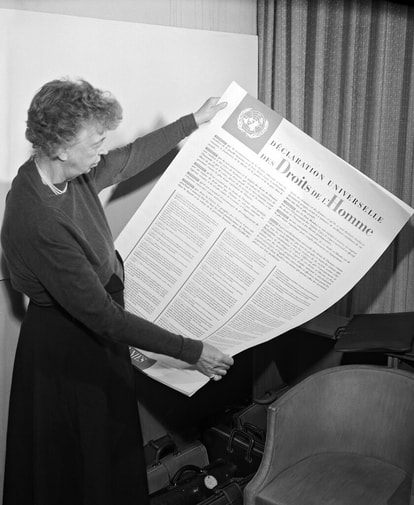 Eleanor Roosevelt with the Declaration of Human Rights, Public Domain
Eleanor Roosevelt with the Declaration of Human Rights, Public Domain
Women and the United Nations
After World War II, women assumed a number of leadership positions in governments and international organizations around the world. Eleanor Roosevelt was a crucial figure in the creation of the United Nations (UN), serving as the US delegate to the UN General Assembly from 1945 to 1952. In 1946, the UN established the Commission on the Status of Women (CSW) as a global policy-making body dedicated to promoting gender equality and women's empowerment. The CSW has since provided a key platform for discussing women's rights issues, reviewing progress, and developing strategies to advance gender equality worldwide.
The first meeting of the United Nations in 1947 in Corona, Queens included 15 female government representatives. Eleanor Roosevelt read "An Open Letter to the Women of the World," which was described as the "first official expression of women's voices within the UN and a blueprint for the role women should have in a new realm of international politics and collaboration." This letter was initiated by Hélène Lefaucheux from France. Lefaucheux also held prominent positions as the president of the French National Council of Women and the president of the International Council of Women (ICW) from 1957 to 1963. The combined efforts of Lefaucheux and Roosevelt aimed to promote human rights, social justice, and international cooperation.
From 1947 to 1962, the CSW focused on establishing standards and sponsoring international conventions to combat discriminatory legislation and raise global awareness of women's issues. Roosevelt served as the first Chair of the UN Commission on Human Rights and was instrumental in advocating for the adoption and implementation of the Universal Declaration of Human Rights (UDHR) in 1984. She traveled extensively, both within the United States and abroad, to engage in conversation on human rights issues. The UDHR explicitly recognized the equal rights and dignity of all individuals, regardless of gender, and emphasized the importance of eliminating discrimination based on sex. This marked a significant step towards recognizing women's rights as human rights on an international scale.
Recognizing the need for data and analysis to support the legal rights of women, the Commission undertook a global assessment of women's status. This extensive research produced a detailed, country-specific overview of women’s political and legal standing, becoming the foundation for drafting human rights policies.
In 1963, the UN General Assembly tasked the CSW with drafting a Declaration on the Elimination of Discrimination against Women, adopted in 1967. The legally binding Convention on the Elimination of All Forms of Discrimination against Women (CEDAW) followed in 1979, with the Optional Protocol in 1999, introducing the right of petition for women victims of discrimination.
But feminism looked different in different places around the world. And just because the UN promoted equality didn’t mean women gained rights, freedoms, and respect in their home countries including in the USA and elsewhere. Women activists shared their advances and their setbacks across national borders, seeking to define their grievances and refine the language with which they demanded greater equality and agency. Clearly stating the characteristics that defined a feminist was a particularly challenging undertaking, and the very definition of feminism has been disputed and re-cast over the past several decades. But for the organizers who placed the interests of women at the center of their activism, the goals of feminism, while varied among many individuals and groups, nevertheless coalesced around the idea that women’s needs were important, their voices needed to be heard, and their issues, while personal, deserved to be addressed politically. This perspective dominated international arenas despite other interpretive feminist frameworks.
After World War II, women assumed a number of leadership positions in governments and international organizations around the world. Eleanor Roosevelt was a crucial figure in the creation of the United Nations (UN), serving as the US delegate to the UN General Assembly from 1945 to 1952. In 1946, the UN established the Commission on the Status of Women (CSW) as a global policy-making body dedicated to promoting gender equality and women's empowerment. The CSW has since provided a key platform for discussing women's rights issues, reviewing progress, and developing strategies to advance gender equality worldwide.
The first meeting of the United Nations in 1947 in Corona, Queens included 15 female government representatives. Eleanor Roosevelt read "An Open Letter to the Women of the World," which was described as the "first official expression of women's voices within the UN and a blueprint for the role women should have in a new realm of international politics and collaboration." This letter was initiated by Hélène Lefaucheux from France. Lefaucheux also held prominent positions as the president of the French National Council of Women and the president of the International Council of Women (ICW) from 1957 to 1963. The combined efforts of Lefaucheux and Roosevelt aimed to promote human rights, social justice, and international cooperation.
From 1947 to 1962, the CSW focused on establishing standards and sponsoring international conventions to combat discriminatory legislation and raise global awareness of women's issues. Roosevelt served as the first Chair of the UN Commission on Human Rights and was instrumental in advocating for the adoption and implementation of the Universal Declaration of Human Rights (UDHR) in 1984. She traveled extensively, both within the United States and abroad, to engage in conversation on human rights issues. The UDHR explicitly recognized the equal rights and dignity of all individuals, regardless of gender, and emphasized the importance of eliminating discrimination based on sex. This marked a significant step towards recognizing women's rights as human rights on an international scale.
Recognizing the need for data and analysis to support the legal rights of women, the Commission undertook a global assessment of women's status. This extensive research produced a detailed, country-specific overview of women’s political and legal standing, becoming the foundation for drafting human rights policies.
In 1963, the UN General Assembly tasked the CSW with drafting a Declaration on the Elimination of Discrimination against Women, adopted in 1967. The legally binding Convention on the Elimination of All Forms of Discrimination against Women (CEDAW) followed in 1979, with the Optional Protocol in 1999, introducing the right of petition for women victims of discrimination.
But feminism looked different in different places around the world. And just because the UN promoted equality didn’t mean women gained rights, freedoms, and respect in their home countries including in the USA and elsewhere. Women activists shared their advances and their setbacks across national borders, seeking to define their grievances and refine the language with which they demanded greater equality and agency. Clearly stating the characteristics that defined a feminist was a particularly challenging undertaking, and the very definition of feminism has been disputed and re-cast over the past several decades. But for the organizers who placed the interests of women at the center of their activism, the goals of feminism, while varied among many individuals and groups, nevertheless coalesced around the idea that women’s needs were important, their voices needed to be heard, and their issues, while personal, deserved to be addressed politically. This perspective dominated international arenas despite other interpretive feminist frameworks.
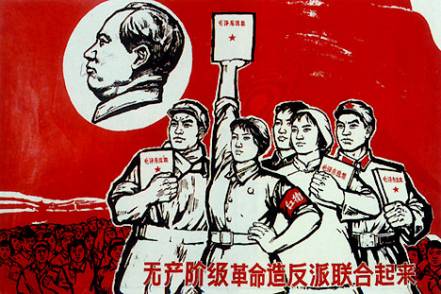 Women in the Cultural Revolution, "Proletarian Revolutionary Rebels Unite," Public Domain
Women in the Cultural Revolution, "Proletarian Revolutionary Rebels Unite," Public Domain
Feminism in the Communist World
Women in the communist world also experienced the emergence of feminism, albeit one supported and controlled by state and party interests. The Russian Revolution had initially embraced equality, allowing women to assume various political roles. Women advocated for feminist ideas without explicitly labeling themselves as such, women's liberation was not a central focus of communist political goals. Instead, it was seen as a natural outcome after achieving socialism, with a focus on working-class women rather than women as a whole. In practice, male comrades often resisted treating female comrades as equals, undermining the goal of women's emancipation.
In China, feminism was part of the “Cultural Revolution” led by Mao Zedong from 1966 to 1977. The Cultural Revolution sought to eradicate the "Four Olds": old thoughts, old culture, old habits, and old customs. It promoted revolution and rebellion as positive forces in order to level c=old class distinctions and establish a more equitable society. As part of this campaign, many schools were shut down, and intellectuals were targeted in an effort to reposition them within society.
During the Cultural Revolution, there was a strong emphasis on the promotion of proletarian values and the suppression of perceived bourgeois elements. This included challenging traditional gender roles and hierarchies. The movement sought to dismantle perceived elitism and privilege, and individuals who were seen as upholding those values, regardless of their gender, could become targets. The Chinese government brought healthcare, education, and rural industrialization to the countryside. However, the movement also led to violent actions by the Red Guards, who attacked local party and government officials, teachers, intellectuals, factory managers, and others perceived as enemies of the revolution.
Communist feminism emerged during this time but faced significant challenges. Despite communist ideals of gender equality, women still bore the double burden of domestic work and paid employment, mirroring a problem seen in the Western world as well. Women were rarely seen in top political leadership positions, and communist feminism faded within a decade of its inception in each country. In addition, the one-child policy created pressure in a patriarchal society to have male children which led to femicide.
Communist economies, by the 1970s, showed little progress in catching up to capitalist economies. The Soviet economy was stagnant, and people faced long queues for consumer goods, which were of poor quality and increasingly scarce. Lastly, various incidents undermined communist claims to moral superiority over capitalism. The horrors of Stalin's "Terror" and the gulag, as well as Mao's Cultural Revolution and the genocide in communist Cambodia, were stark reminders of the failures and moral challenges within the communist systems.
For women living in communist systems, the transition to democracy wasn’t necessarily the answer. The loss of basic rights, including sexual equality and reproductive rights, has become a harsh reality. The political opposition's misleading narrative has contributed to the overall suppression of rights, particularly for women. This suppression of women's rights is intertwined with the broader political context. Despite democratic reforms and the promotion of equality ideals, traditional norms and biases continue to dominate. Surprisingly, the absence of a feminist movement in this context is notable, or more precisely, the existing feminism is limited to a relatively marginalized elite and lacks widespread societal support, even from accomplished women activists.
Meanwhile, globally, there was a broader embrace of democracy, feminism, and human rights as the intended legacy of humankind, however this has also been rarely realized.. In the USA in particular, the workplace opened up to women in new ways thanks to the effective agitation by Liberal feminist organizations. But issues such as child and elder care, and lack of maternity leave and parental leave hobbled women’s equality. The democracies of Europe attended more to the fundamental issues that secured equity for women.
Women in the communist world also experienced the emergence of feminism, albeit one supported and controlled by state and party interests. The Russian Revolution had initially embraced equality, allowing women to assume various political roles. Women advocated for feminist ideas without explicitly labeling themselves as such, women's liberation was not a central focus of communist political goals. Instead, it was seen as a natural outcome after achieving socialism, with a focus on working-class women rather than women as a whole. In practice, male comrades often resisted treating female comrades as equals, undermining the goal of women's emancipation.
In China, feminism was part of the “Cultural Revolution” led by Mao Zedong from 1966 to 1977. The Cultural Revolution sought to eradicate the "Four Olds": old thoughts, old culture, old habits, and old customs. It promoted revolution and rebellion as positive forces in order to level c=old class distinctions and establish a more equitable society. As part of this campaign, many schools were shut down, and intellectuals were targeted in an effort to reposition them within society.
During the Cultural Revolution, there was a strong emphasis on the promotion of proletarian values and the suppression of perceived bourgeois elements. This included challenging traditional gender roles and hierarchies. The movement sought to dismantle perceived elitism and privilege, and individuals who were seen as upholding those values, regardless of their gender, could become targets. The Chinese government brought healthcare, education, and rural industrialization to the countryside. However, the movement also led to violent actions by the Red Guards, who attacked local party and government officials, teachers, intellectuals, factory managers, and others perceived as enemies of the revolution.
Communist feminism emerged during this time but faced significant challenges. Despite communist ideals of gender equality, women still bore the double burden of domestic work and paid employment, mirroring a problem seen in the Western world as well. Women were rarely seen in top political leadership positions, and communist feminism faded within a decade of its inception in each country. In addition, the one-child policy created pressure in a patriarchal society to have male children which led to femicide.
Communist economies, by the 1970s, showed little progress in catching up to capitalist economies. The Soviet economy was stagnant, and people faced long queues for consumer goods, which were of poor quality and increasingly scarce. Lastly, various incidents undermined communist claims to moral superiority over capitalism. The horrors of Stalin's "Terror" and the gulag, as well as Mao's Cultural Revolution and the genocide in communist Cambodia, were stark reminders of the failures and moral challenges within the communist systems.
For women living in communist systems, the transition to democracy wasn’t necessarily the answer. The loss of basic rights, including sexual equality and reproductive rights, has become a harsh reality. The political opposition's misleading narrative has contributed to the overall suppression of rights, particularly for women. This suppression of women's rights is intertwined with the broader political context. Despite democratic reforms and the promotion of equality ideals, traditional norms and biases continue to dominate. Surprisingly, the absence of a feminist movement in this context is notable, or more precisely, the existing feminism is limited to a relatively marginalized elite and lacks widespread societal support, even from accomplished women activists.
Meanwhile, globally, there was a broader embrace of democracy, feminism, and human rights as the intended legacy of humankind, however this has also been rarely realized.. In the USA in particular, the workplace opened up to women in new ways thanks to the effective agitation by Liberal feminist organizations. But issues such as child and elder care, and lack of maternity leave and parental leave hobbled women’s equality. The democracies of Europe attended more to the fundamental issues that secured equity for women.
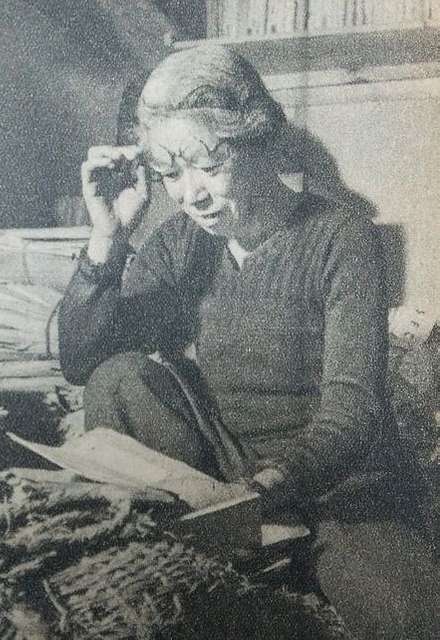 Fusae Ichikawa, Public Domain
Fusae Ichikawa, Public Domain
Western Feminism
In the western world, feminist movements and organizations appeared to advance women’s lives economically, politically, and personally. The goals of these groups varied over time and across national borders. Liberal feminists, like those who headed to the UN to make change, sought to reform institutions from within. These groups tended to attract middle-class women who expressed confidence that their efforts would bring positive results.
By contrast, radical Feminists rejected the idea that reform through traditional societal institutions would bring about the liberation of women. Radical Feminists advocated re-shaping society in a non-hierarchical and non-authoritarian manner. They rejected the male dominance of power structures and advocated the creation of new models for advancing women’s power. The major force to be overthrown from a Radical Feminist perspective was patriarchy. Radical feminists debated whether it was more important to challenge the patriarchy or overthrow capitalism as the root of oppression.
A number of feminist groups took shape around specific issues, and membership in these groups occasionally overlapped. Cultural or Difference Feminists rejected the notion that women should be more like men. They argued that there is a ‘female nature’ or ‘essence’ that makes women fundamentally different from men, and they reject any notion of male superiority. New understandings of gender as a result of the LGBTQ+ movement, and the idea of fluidity have made Difference Feminism outdated or out of place in the present context.
Women in France protested a rigid patriarchal system, a dogmatic and powerful Catholic Church, and the presumption that women did not need a life in the public sphere. French women who had taken part in the protests of 1968 were frustrated at the domination of men in the movement, even as men and women alike shut down universities, barricaded the streets, and demanded a loosening of social restrictions in French life. As they watched their male colleagues write theoretical treatises and make public speeches, women were relegated to tasks that were not recognized by the public or appreciated by their male colleagues.
Nine women affiliated with the MLF launched a women’s liberation protest in Paris. They laid a wreath at the Arc de Triomphe, the site of commemorations of the unknown dead in France’s wars. They called attention to “the one person more unknown than the unknown soldier, his wife.” The march and wreath laying received wide media coverage in France and was an important event in the evolution of France’s organized struggle for women’s liberation.
The most immediate political goal of the MLF was changing the criminal status of abortion in the French Penal Code. Abortion was illegal except to save the life of the mother. On April 5, 1971, the MLF published the Manifeste des 343 (Manifesto of the 343) in La Nouvelle Observateur, a weekly news magazine. This document was both a petition to the national government to change the Penal Code and an act of civil disobedience, as 343 women came forward to declare, “Je me suis fait avorter.” (I have had an abortion).
Lesbians in France had to struggle for their own voice within the discourse of French feminism. Monique Wittig was a prominent feminist theorist and a founder of the Front Homosexual d’Action Revolutionnaire (FHAR, or Homosexual Front for Revolutionary Action). On April 4, 1971, a small group of female FHAR members met to discuss their grievances. An angry member of the audience called the group a gouines rouges or “red dyke.” Both terms are slurs, “red” labels someone as a communist, while “dyke” is an derrogatory term for a lesbian. But not all slurs have to be hurtful and for the FHAR, the name stuck, becoming a badge of honor. The Gouines Rouges worked to organize women and later joined forces with MLF to integrate lesbian issues into the platform of France’s women’s liberation movement.
As late as 1970, women in Britain needed a husband or male relative’s permission to borrow money and had to have an escort to certain restaurants and pubs in the evening. Jobs were advertised by gender in the ‘help wanted’ columns, and only twenty-six of the 650 members of Parliament (MPs) were women in 1970. Domestic violence and marital rape were not crimes, male doctors were often ignorant of women’s health issues, husbands often retained child custody in the case of divorce; and marriage — allowed only to heterosexuals — was still idealized as the high point of a woman’s life.
A very public campaign for labor justice came in the three-year effort to gain higher wages for women who cleaned London offices at night. The Night Cleaners Campaign highlighted both class and gender as sources of women’s oppression. The women spent more than two years starting in 1970 picketing and leafleting in support of their cause. The Transport and General Workers Union offered no support to the night cleaners, as the majority of union men believed that women’s “nature” required them to be in the home rather than on the assembly line or in an office cleaning at night. One might well have asked what a woman would have done if she had wanted to take her late-night food break at a Wimpy Bar.
The legal system was slow to act on behalf of women. Married women gained the right to retain money they earned after marriage in 1964, but since most women did not work outside the home, the law granted them only minimal financial independence. Abortion within 24 weeks of conception was legalized in Britain in 1967, but two doctors had to consent to the procedure, affirming that it was necessary to preserve the life of the mother, and while that may seem reasonable, not all communities have access to two doctors in a timely manner. The Sex Discrimination Act, which outlawed only certain types of discrimination based on sex or marital status, was not passed until 1975.
Feminists have long protested the objectification of women represented by beauty pageants. The parade of women in evening gowns or bathing suits was often likened to a cattle auction. The 1968 protests at the Miss America pageant where a sheep was crowned as an alternative beauty queen was front page news in England. On November 20, 1970, members of Britain’s Women’s Liberation Movement stormed the Miss World pageant at the Royal Albert Hall. The in-person audience and one hundred million worldwide television viewers witnessed protesters throwing tomatoes and flour bombs and shooting water pistols at the stage. The WLM slogan was “We’re not beautiful, we’re not ugly, we’re angry!” They failed to stop the pageant, but the women got the publicity they needed.
Germany was split into the communist East and the capitalist West, the epitome of the Iron Curtain, or wall between the two dominant global worlds. It was not until 1977 that West German married women were allowed to work outside the home without her husband’s permission. The Basic Law of West Germany did not include specific protections for women. Abortion was one of the personal and political issues that inspired West German women to write letters, sign petitions, and risk arrest in public demonstrations. Law 218 of the German Penal Code was passed in 1871 and prohibited abortion under all circumstances. Neue Frauenbewegung (New Women’s Group) activists focused on abortion as essential to a woman’s freedom. The struggle to legalize Fristenlosung, or the termination of a pregnancy in the first trimester, activated the women’s movement in West Germany in the 1970s. Women who called themselves Brot und Rosen-Frauenaktion 70 (Bread and Roses—Women’s Action 70) articulated the earliest demands for access to abortion. Their slogan was Mein Bauch gehort mir! (My belly belongs to me!).
On June 6 1971, the popular news magazine Stern published a statement under the banner headline “We Had an Abortion.” 374 women protested bans on abortion, describing them as outdated. The statement was the creation of Alice Schwarzer, a journalist who was inspired by the efforts of French feminists. The 374 German women who put their names to the Stern statement declared that they had had abortions and thus broken the law. This was a powerful public statement from women who were expected to keep their private lives private.
Women from diverse educational and socioeconomic backgrounds came together around a highly personal political issue. The “scandal” of so many women admitting to having broken the law brought women from all over West Germany to the larger cause of women’s liberation. The publishers of Stern printed the statement on the magazine’s title page. Thousands of people, many with no political affiliation, wrote letters and signed petitions in support of the Stern women. The West German battle over access to abortion was an example of the transnational communication with feminists in the United States, France, and elsewhere that facilitated national political action.
Not surprisingly, Catholic leaders objected to any loosening of legal restrictions on abortion. Cardinal Joseph Hoffner of Cologne issued a statement on abortion that not only re-stated the Church’s position that human life starts at conception, it also reminded politicians of the political power of the Church.
In March of 1974, West Germany’s popular magazine, Der Spiegel, printed a statement from 329 doctors and nurses who said they had performed unpaid (but nevertheless illegal) abortions. Fourteen doctors said they were prepared to break the law by performing an abortion in public. They issued a statement, saying that “Every day 2,000 to 3,000 illegal abortions are carried out in the FRG (Federal Republic of Germany). Our campaign ought to put an end to the hypocrisy.” Women’s “personal” issues had become broadly political. The operation took place on March 9, 1974 at the Kreuzberg Women’s Center and was filmed by the public television Panorama network. But the procedure did not reach the television audience because of a legal challenge brought by the Catholic Church. Panorama executives instead aired footage of an empty studio in protest. In the days after the showing, women in West Germany staged acts of civil disobedience, but the law did not change. West German feminists ‘disrupted beauty contests, bricked up sex-shops, sat in at churches and doctors’ conventions, and organized tribunals on abortion, violence against women, and other central themes in the women’s movement’. One radical women’s group, Rote Zora, destroyed property in forty-five arson attacks and bombings of sexist institutions between 1975 and 1995.
The transnational nature of anti-war protests, challenges to traditional authority, and a recognition of the need for a movement that would act specifically on behalf of women was evident in protests led by Mexican students. A Mexican women’s movement was taking shape as young activists protested the Vietnam War, decried an antiquated and repressive university system, and mocked cultural mores that restricted the lives of young people. When students rallied in the Plaza de las Tres Culturas in the Tlateloco neighborhood of Mexico City on October 2, 1968, they were unprepared for the violence perpetrated by military and police forces. The Tlateloco Massacre took three hundred young lives and imprisoned and tortured many others. The treatment of the students undermined confidence in the government, the police, and other voices of authority in Mexican society. Women participants in the protest challenged the traditional authority of their parents, specifically their fathers, the paternalism of university administrators, and the intransigence of their government. Women began to speak for themselves and were convinced that they would never return to the subservient status they had occupied. The time had come for a new feminist movement in Mexico.
The feminist movement in Mexico was initially inspired by the events of October 1968 and the connections women had made with feminists in Europe and the United States. Many political parties promoted pejorative caricatures of feminists as self-indulgent and egotistical, anti-family and anti-male, and divisive of community and class solidarity. Such stigmas made it difficult to imagine that a feminist movement of any significance would ever take root there.
On Mothers’ Day in 1971, women staged a protest at the Monument to the Mother in Mexico City. They called their action Protesta Contra el Mito de la Mujer (Protest of the Myth of the Mother). The women defied the authorities who denied them a permit to gather at the monument. Coincidentally, contestants in the Miss Mexico competition were also gathered at the monument for a photo opportunity. The irony of potential Miss Mexicos competing for space with protesting mothers was not lost on the local television stations, which showed footage of both groups.
Many Mexican feminists looked to traditional channels and the legal system to integrate women more equally into the public sphere. This ‘feminism of equality’ sought to force political, economic, and social institutions to provide more opportunities for women. Arguing from a differing perspective, proponents of ‘feminism of difference’ were less concerned with equality in society than with locating the source of women’s equality in gender itself. Their areas of focus were violence against women and the demand to legalize abortion. Mexican feminists had transcended their fear of police reprisals and public mockery to articulate their demands. In the late 1970s, lesbian and gay organizations joined with feminist groups to demand equality.
Japanese women in the immediate aftermath of the War, the Women’s Committee on Post-war Policy led by Fusae Ichikawa negotiated more political rights for women, ensuring greater autonomy for them in the political sphere, if not yet in their homes. Women made political progress but they were still, in many respects, second-class citizens.
By the late 1960s, Japan’s feminists focused their protest on the Vietnam War and Japanese capitalism. Women voiced their opposition to the male leadership of New Left organizations and insisted that issues related to sexuality, the absence of power and agency for women, and the role of motherhood in promoting inequality deserved attention. Most male movement leaders paid little attention to the women’s demands. The emergence of feminist organizations in the 1970s contributed to a debate in Japanese society about the threat to masculinity posed by women. Japanese feminists sought more than legal equality. They argued for a transformation of society in which male and female perspectives were equally acknowledged and respected.
In the western world, feminist movements and organizations appeared to advance women’s lives economically, politically, and personally. The goals of these groups varied over time and across national borders. Liberal feminists, like those who headed to the UN to make change, sought to reform institutions from within. These groups tended to attract middle-class women who expressed confidence that their efforts would bring positive results.
By contrast, radical Feminists rejected the idea that reform through traditional societal institutions would bring about the liberation of women. Radical Feminists advocated re-shaping society in a non-hierarchical and non-authoritarian manner. They rejected the male dominance of power structures and advocated the creation of new models for advancing women’s power. The major force to be overthrown from a Radical Feminist perspective was patriarchy. Radical feminists debated whether it was more important to challenge the patriarchy or overthrow capitalism as the root of oppression.
A number of feminist groups took shape around specific issues, and membership in these groups occasionally overlapped. Cultural or Difference Feminists rejected the notion that women should be more like men. They argued that there is a ‘female nature’ or ‘essence’ that makes women fundamentally different from men, and they reject any notion of male superiority. New understandings of gender as a result of the LGBTQ+ movement, and the idea of fluidity have made Difference Feminism outdated or out of place in the present context.
Women in France protested a rigid patriarchal system, a dogmatic and powerful Catholic Church, and the presumption that women did not need a life in the public sphere. French women who had taken part in the protests of 1968 were frustrated at the domination of men in the movement, even as men and women alike shut down universities, barricaded the streets, and demanded a loosening of social restrictions in French life. As they watched their male colleagues write theoretical treatises and make public speeches, women were relegated to tasks that were not recognized by the public or appreciated by their male colleagues.
Nine women affiliated with the MLF launched a women’s liberation protest in Paris. They laid a wreath at the Arc de Triomphe, the site of commemorations of the unknown dead in France’s wars. They called attention to “the one person more unknown than the unknown soldier, his wife.” The march and wreath laying received wide media coverage in France and was an important event in the evolution of France’s organized struggle for women’s liberation.
The most immediate political goal of the MLF was changing the criminal status of abortion in the French Penal Code. Abortion was illegal except to save the life of the mother. On April 5, 1971, the MLF published the Manifeste des 343 (Manifesto of the 343) in La Nouvelle Observateur, a weekly news magazine. This document was both a petition to the national government to change the Penal Code and an act of civil disobedience, as 343 women came forward to declare, “Je me suis fait avorter.” (I have had an abortion).
Lesbians in France had to struggle for their own voice within the discourse of French feminism. Monique Wittig was a prominent feminist theorist and a founder of the Front Homosexual d’Action Revolutionnaire (FHAR, or Homosexual Front for Revolutionary Action). On April 4, 1971, a small group of female FHAR members met to discuss their grievances. An angry member of the audience called the group a gouines rouges or “red dyke.” Both terms are slurs, “red” labels someone as a communist, while “dyke” is an derrogatory term for a lesbian. But not all slurs have to be hurtful and for the FHAR, the name stuck, becoming a badge of honor. The Gouines Rouges worked to organize women and later joined forces with MLF to integrate lesbian issues into the platform of France’s women’s liberation movement.
As late as 1970, women in Britain needed a husband or male relative’s permission to borrow money and had to have an escort to certain restaurants and pubs in the evening. Jobs were advertised by gender in the ‘help wanted’ columns, and only twenty-six of the 650 members of Parliament (MPs) were women in 1970. Domestic violence and marital rape were not crimes, male doctors were often ignorant of women’s health issues, husbands often retained child custody in the case of divorce; and marriage — allowed only to heterosexuals — was still idealized as the high point of a woman’s life.
A very public campaign for labor justice came in the three-year effort to gain higher wages for women who cleaned London offices at night. The Night Cleaners Campaign highlighted both class and gender as sources of women’s oppression. The women spent more than two years starting in 1970 picketing and leafleting in support of their cause. The Transport and General Workers Union offered no support to the night cleaners, as the majority of union men believed that women’s “nature” required them to be in the home rather than on the assembly line or in an office cleaning at night. One might well have asked what a woman would have done if she had wanted to take her late-night food break at a Wimpy Bar.
The legal system was slow to act on behalf of women. Married women gained the right to retain money they earned after marriage in 1964, but since most women did not work outside the home, the law granted them only minimal financial independence. Abortion within 24 weeks of conception was legalized in Britain in 1967, but two doctors had to consent to the procedure, affirming that it was necessary to preserve the life of the mother, and while that may seem reasonable, not all communities have access to two doctors in a timely manner. The Sex Discrimination Act, which outlawed only certain types of discrimination based on sex or marital status, was not passed until 1975.
Feminists have long protested the objectification of women represented by beauty pageants. The parade of women in evening gowns or bathing suits was often likened to a cattle auction. The 1968 protests at the Miss America pageant where a sheep was crowned as an alternative beauty queen was front page news in England. On November 20, 1970, members of Britain’s Women’s Liberation Movement stormed the Miss World pageant at the Royal Albert Hall. The in-person audience and one hundred million worldwide television viewers witnessed protesters throwing tomatoes and flour bombs and shooting water pistols at the stage. The WLM slogan was “We’re not beautiful, we’re not ugly, we’re angry!” They failed to stop the pageant, but the women got the publicity they needed.
Germany was split into the communist East and the capitalist West, the epitome of the Iron Curtain, or wall between the two dominant global worlds. It was not until 1977 that West German married women were allowed to work outside the home without her husband’s permission. The Basic Law of West Germany did not include specific protections for women. Abortion was one of the personal and political issues that inspired West German women to write letters, sign petitions, and risk arrest in public demonstrations. Law 218 of the German Penal Code was passed in 1871 and prohibited abortion under all circumstances. Neue Frauenbewegung (New Women’s Group) activists focused on abortion as essential to a woman’s freedom. The struggle to legalize Fristenlosung, or the termination of a pregnancy in the first trimester, activated the women’s movement in West Germany in the 1970s. Women who called themselves Brot und Rosen-Frauenaktion 70 (Bread and Roses—Women’s Action 70) articulated the earliest demands for access to abortion. Their slogan was Mein Bauch gehort mir! (My belly belongs to me!).
On June 6 1971, the popular news magazine Stern published a statement under the banner headline “We Had an Abortion.” 374 women protested bans on abortion, describing them as outdated. The statement was the creation of Alice Schwarzer, a journalist who was inspired by the efforts of French feminists. The 374 German women who put their names to the Stern statement declared that they had had abortions and thus broken the law. This was a powerful public statement from women who were expected to keep their private lives private.
Women from diverse educational and socioeconomic backgrounds came together around a highly personal political issue. The “scandal” of so many women admitting to having broken the law brought women from all over West Germany to the larger cause of women’s liberation. The publishers of Stern printed the statement on the magazine’s title page. Thousands of people, many with no political affiliation, wrote letters and signed petitions in support of the Stern women. The West German battle over access to abortion was an example of the transnational communication with feminists in the United States, France, and elsewhere that facilitated national political action.
Not surprisingly, Catholic leaders objected to any loosening of legal restrictions on abortion. Cardinal Joseph Hoffner of Cologne issued a statement on abortion that not only re-stated the Church’s position that human life starts at conception, it also reminded politicians of the political power of the Church.
In March of 1974, West Germany’s popular magazine, Der Spiegel, printed a statement from 329 doctors and nurses who said they had performed unpaid (but nevertheless illegal) abortions. Fourteen doctors said they were prepared to break the law by performing an abortion in public. They issued a statement, saying that “Every day 2,000 to 3,000 illegal abortions are carried out in the FRG (Federal Republic of Germany). Our campaign ought to put an end to the hypocrisy.” Women’s “personal” issues had become broadly political. The operation took place on March 9, 1974 at the Kreuzberg Women’s Center and was filmed by the public television Panorama network. But the procedure did not reach the television audience because of a legal challenge brought by the Catholic Church. Panorama executives instead aired footage of an empty studio in protest. In the days after the showing, women in West Germany staged acts of civil disobedience, but the law did not change. West German feminists ‘disrupted beauty contests, bricked up sex-shops, sat in at churches and doctors’ conventions, and organized tribunals on abortion, violence against women, and other central themes in the women’s movement’. One radical women’s group, Rote Zora, destroyed property in forty-five arson attacks and bombings of sexist institutions between 1975 and 1995.
The transnational nature of anti-war protests, challenges to traditional authority, and a recognition of the need for a movement that would act specifically on behalf of women was evident in protests led by Mexican students. A Mexican women’s movement was taking shape as young activists protested the Vietnam War, decried an antiquated and repressive university system, and mocked cultural mores that restricted the lives of young people. When students rallied in the Plaza de las Tres Culturas in the Tlateloco neighborhood of Mexico City on October 2, 1968, they were unprepared for the violence perpetrated by military and police forces. The Tlateloco Massacre took three hundred young lives and imprisoned and tortured many others. The treatment of the students undermined confidence in the government, the police, and other voices of authority in Mexican society. Women participants in the protest challenged the traditional authority of their parents, specifically their fathers, the paternalism of university administrators, and the intransigence of their government. Women began to speak for themselves and were convinced that they would never return to the subservient status they had occupied. The time had come for a new feminist movement in Mexico.
The feminist movement in Mexico was initially inspired by the events of October 1968 and the connections women had made with feminists in Europe and the United States. Many political parties promoted pejorative caricatures of feminists as self-indulgent and egotistical, anti-family and anti-male, and divisive of community and class solidarity. Such stigmas made it difficult to imagine that a feminist movement of any significance would ever take root there.
On Mothers’ Day in 1971, women staged a protest at the Monument to the Mother in Mexico City. They called their action Protesta Contra el Mito de la Mujer (Protest of the Myth of the Mother). The women defied the authorities who denied them a permit to gather at the monument. Coincidentally, contestants in the Miss Mexico competition were also gathered at the monument for a photo opportunity. The irony of potential Miss Mexicos competing for space with protesting mothers was not lost on the local television stations, which showed footage of both groups.
Many Mexican feminists looked to traditional channels and the legal system to integrate women more equally into the public sphere. This ‘feminism of equality’ sought to force political, economic, and social institutions to provide more opportunities for women. Arguing from a differing perspective, proponents of ‘feminism of difference’ were less concerned with equality in society than with locating the source of women’s equality in gender itself. Their areas of focus were violence against women and the demand to legalize abortion. Mexican feminists had transcended their fear of police reprisals and public mockery to articulate their demands. In the late 1970s, lesbian and gay organizations joined with feminist groups to demand equality.
Japanese women in the immediate aftermath of the War, the Women’s Committee on Post-war Policy led by Fusae Ichikawa negotiated more political rights for women, ensuring greater autonomy for them in the political sphere, if not yet in their homes. Women made political progress but they were still, in many respects, second-class citizens.
By the late 1960s, Japan’s feminists focused their protest on the Vietnam War and Japanese capitalism. Women voiced their opposition to the male leadership of New Left organizations and insisted that issues related to sexuality, the absence of power and agency for women, and the role of motherhood in promoting inequality deserved attention. Most male movement leaders paid little attention to the women’s demands. The emergence of feminist organizations in the 1970s contributed to a debate in Japanese society about the threat to masculinity posed by women. Japanese feminists sought more than legal equality. They argued for a transformation of society in which male and female perspectives were equally acknowledged and respected.
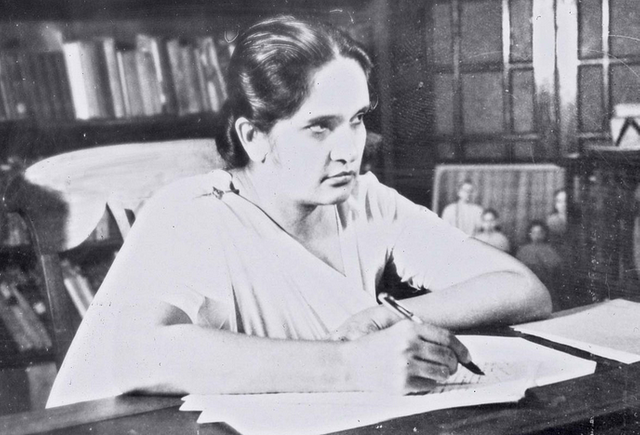 Sirimavo Bandaranaike, Public Domain
Sirimavo Bandaranaike, Public Domain
Women Prime Ministers
The 20th Century also saw the rise of women appointed and elected for political office. It had taken centuries since the fall of monarchies, but finally, democracies were coming around to the idea of female leadership. In fact, as of September 2022, the United Nations reported there to be 28 current female world leaders. Female prime ministers, in particular, currently make up roughly 21% of prime ministers worldwide.
While more than 70 countries have now seen women serving in their country’s highest position, there are a handful of women whose impacts were particularly significant.
In 1960, Sirimavo Bandaranaike of Ceylon (later Sri Lanka) became the world’s first female prime minister. Bandaranaike was persuaded to enter the political sphere after her husband, who became prime minister in 1956, was assassinated in 1959. She would serve as prime minister for two terms initially. Bandaranaike created a legacy of female leadership when, in 1994, her daughter, Chandrika Kumaratunga, became president of Sri Lanka and appointed Bandaranaike to return as prime minister for a third term.
The year 1979 was particularly monumental for female prime ministers. Maria da Lourdes Pintasilgo of Portugal became the first female prime minister this year, as did Lidia Gueiler Tejada of Bolivia. Of course, the most well-known woman to be elected as prime minister in 1979 was Margaret Thatcher. Thatcher would become the first female prime minister of the United Kingdom and would also become the longest serving prime minister in modern history with nearly twelve years of public service in the role. Thatcher was tenacious, earning her the name of the “Iron Lady” for her strong-willed leadership style.
Europe would continue to see female prime ministers in the following years. In 1990, Mary Robinson became the first female president of Ireland. She played a significant role in the arenas of human rights, gender equality, and climate change. She was very well-liked throughout the country, receiving a 93% approval rating from the Irish public at her peak.
Golda Meir became Israel’s first female prime minister in 1969. She was particularly instrumental in the creation of the State of Israel as an independent nation as she was one of the 24 signatories (and one of the only two women) to sign the Israeli Declaration of Independence. She would later also earn the title of “Iron Lady” for her leadership during the 19-day Yom Kippur War.
Benazir Bhutto became the first female prime minister of Pakistan in 1988, but she also set another precedent during her time in this role. Bhutto would become the first female world leader to give birth to a child while in office, though she would not be the last.
New Zealand, in particular, has seen a number of female prime ministers, beginning with Jenny Shipley in 1997. Shipley was succeeded in 1999 by another female prime minister, Helen Clark. And, in 2017, Jacinda Arden became New Zealand’s third female prime minister. Arden would follow in Bhutto of Pakistan’s footsteps when she too gave birth to a child while serving as prime minister. Arden set other precedents as the youngest female world leader, banning military-style semi-automatic firearms after the tragic 2019 mosque shootings, and becoming the first prime minister to march in a Pride parade.
The United States has yet to elect a woman to the leadership role of president, but there have still been strides to equalize this field. In 2020, Kamala Harris became the first woman in American History to be elected as Vice President. While the United States still has a way to go, there have been great strides toward gender equality in leadership positions.
Yet the women at the top, don’t represent all women and everywhere women remain the majority of those living in poverty.
The 20th Century also saw the rise of women appointed and elected for political office. It had taken centuries since the fall of monarchies, but finally, democracies were coming around to the idea of female leadership. In fact, as of September 2022, the United Nations reported there to be 28 current female world leaders. Female prime ministers, in particular, currently make up roughly 21% of prime ministers worldwide.
While more than 70 countries have now seen women serving in their country’s highest position, there are a handful of women whose impacts were particularly significant.
In 1960, Sirimavo Bandaranaike of Ceylon (later Sri Lanka) became the world’s first female prime minister. Bandaranaike was persuaded to enter the political sphere after her husband, who became prime minister in 1956, was assassinated in 1959. She would serve as prime minister for two terms initially. Bandaranaike created a legacy of female leadership when, in 1994, her daughter, Chandrika Kumaratunga, became president of Sri Lanka and appointed Bandaranaike to return as prime minister for a third term.
The year 1979 was particularly monumental for female prime ministers. Maria da Lourdes Pintasilgo of Portugal became the first female prime minister this year, as did Lidia Gueiler Tejada of Bolivia. Of course, the most well-known woman to be elected as prime minister in 1979 was Margaret Thatcher. Thatcher would become the first female prime minister of the United Kingdom and would also become the longest serving prime minister in modern history with nearly twelve years of public service in the role. Thatcher was tenacious, earning her the name of the “Iron Lady” for her strong-willed leadership style.
Europe would continue to see female prime ministers in the following years. In 1990, Mary Robinson became the first female president of Ireland. She played a significant role in the arenas of human rights, gender equality, and climate change. She was very well-liked throughout the country, receiving a 93% approval rating from the Irish public at her peak.
Golda Meir became Israel’s first female prime minister in 1969. She was particularly instrumental in the creation of the State of Israel as an independent nation as she was one of the 24 signatories (and one of the only two women) to sign the Israeli Declaration of Independence. She would later also earn the title of “Iron Lady” for her leadership during the 19-day Yom Kippur War.
Benazir Bhutto became the first female prime minister of Pakistan in 1988, but she also set another precedent during her time in this role. Bhutto would become the first female world leader to give birth to a child while in office, though she would not be the last.
New Zealand, in particular, has seen a number of female prime ministers, beginning with Jenny Shipley in 1997. Shipley was succeeded in 1999 by another female prime minister, Helen Clark. And, in 2017, Jacinda Arden became New Zealand’s third female prime minister. Arden would follow in Bhutto of Pakistan’s footsteps when she too gave birth to a child while serving as prime minister. Arden set other precedents as the youngest female world leader, banning military-style semi-automatic firearms after the tragic 2019 mosque shootings, and becoming the first prime minister to march in a Pride parade.
The United States has yet to elect a woman to the leadership role of president, but there have still been strides to equalize this field. In 2020, Kamala Harris became the first woman in American History to be elected as Vice President. While the United States still has a way to go, there have been great strides toward gender equality in leadership positions.
Yet the women at the top, don’t represent all women and everywhere women remain the majority of those living in poverty.
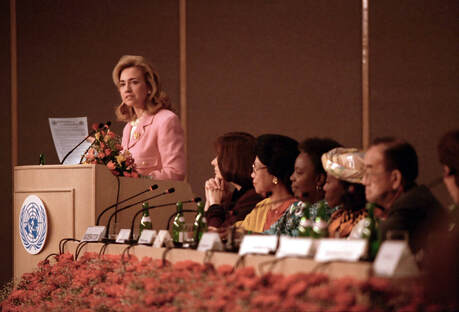 Sharon Farmer, Photograph of First Lady Hillary Clinton at the United Nations Conference on Women in Beijing, China, September 5, 1995. National Archives.
Sharon Farmer, Photograph of First Lady Hillary Clinton at the United Nations Conference on Women in Beijing, China, September 5, 1995. National Archives.
UN Women’s Conferences in the late 20th Century
Addressing the disproportionate impact of poverty on women in the 1960s, the CSW focused on women's needs in community and rural development, agricultural work, family planning, and scientific and technological advances. The Commission advocated for the expansion of technical assistance to advance women's rights, especially in developing countries.
In 1972, marking its 25th anniversary, the CSW recommended designating 1975 as International Women's Year, leading to the First World Conference on Women in Mexico City and the subsequent 1976–1985 UN Decade for Women. This period saw the establishment of new UN offices dedicated to women, including the UN Development Fund for Women (UNIFEM) and the International Research and Training Institute for the Advancement of Women (INSTRAW).
In 1987, following the Third World Conference on Women in Nairobi, the CSW took the lead in coordinating and promoting the UN system's work on economic and social issues for women's empowerment. Efforts shifted towards integrating women's issues as cross-cutting and mainstream concerns, and the Commission played a key role in highlighting violence against women internationally. This led to the adoption of the Declaration on the Elimination of Violence against Women in 1993, and in 1994, the appointment of a UN Special Rapporteur on violence against women.
Perhaps the most significant CSW World Conference was the fourth, which occurred in 1995 in Beijing, China. There tens of thousands of women flocked together to craft the Beijing Declaration and Platform for Action and created systems to monitor it in the decades that followed. The most memorable event from the conference was when then First Lady of the US, Hilary Clinton, addressed the assembly and declared “If there is one message that echoes forth from this conference, it is that human rights are women's rights - and women's rights are human rights. Let us not forget that among those rights are the right to speak freely - and the right to be heard.” But this refrain, which followed a long list of violations too routinely found around the world, was not Clintons, it belonged to the grassroots efforts of thousands of women from around the world. Clinton was just the one to popularize it.
In fact, this groundbreaking event underscored, unlike anything else, the valuable lessons American activists could glean from their global counterparts. This included insights into the detrimental impacts of neoliberal economic policies and the structural adjustment programs of the IMF and World Bank on women.
The connections established during those ten days would lead to fresh enthusiasm, goals, and the emergence of novel organizations, such as the National Asian Pacific American Women’s Forum. Out of the eight thousand Americans who journeyed to China, over a thousand were women of color, affording them the opportunity to engage with 22,000 activists from various nations.
These new connections led to important initiatives, one of the most important being the transnational movement to recognize the survivors of Japanese sexual slavery during World War Two, and to bring restitution to the “Comfort Women.” Thanks to the Violence Against Women in War-Network Japan (VAWW-NET Japan) including efforts by women from the Philippines, Japan and South Korea, a Women’s International War Crimes Tribunal on Japanese Military Sexual Slavery was held in Tokyo in 2000.. It helped bring to light the suffering of the so-called Comfort Women, and continued the fight to memorialize their experiences.
Addressing the disproportionate impact of poverty on women in the 1960s, the CSW focused on women's needs in community and rural development, agricultural work, family planning, and scientific and technological advances. The Commission advocated for the expansion of technical assistance to advance women's rights, especially in developing countries.
In 1972, marking its 25th anniversary, the CSW recommended designating 1975 as International Women's Year, leading to the First World Conference on Women in Mexico City and the subsequent 1976–1985 UN Decade for Women. This period saw the establishment of new UN offices dedicated to women, including the UN Development Fund for Women (UNIFEM) and the International Research and Training Institute for the Advancement of Women (INSTRAW).
In 1987, following the Third World Conference on Women in Nairobi, the CSW took the lead in coordinating and promoting the UN system's work on economic and social issues for women's empowerment. Efforts shifted towards integrating women's issues as cross-cutting and mainstream concerns, and the Commission played a key role in highlighting violence against women internationally. This led to the adoption of the Declaration on the Elimination of Violence against Women in 1993, and in 1994, the appointment of a UN Special Rapporteur on violence against women.
Perhaps the most significant CSW World Conference was the fourth, which occurred in 1995 in Beijing, China. There tens of thousands of women flocked together to craft the Beijing Declaration and Platform for Action and created systems to monitor it in the decades that followed. The most memorable event from the conference was when then First Lady of the US, Hilary Clinton, addressed the assembly and declared “If there is one message that echoes forth from this conference, it is that human rights are women's rights - and women's rights are human rights. Let us not forget that among those rights are the right to speak freely - and the right to be heard.” But this refrain, which followed a long list of violations too routinely found around the world, was not Clintons, it belonged to the grassroots efforts of thousands of women from around the world. Clinton was just the one to popularize it.
In fact, this groundbreaking event underscored, unlike anything else, the valuable lessons American activists could glean from their global counterparts. This included insights into the detrimental impacts of neoliberal economic policies and the structural adjustment programs of the IMF and World Bank on women.
The connections established during those ten days would lead to fresh enthusiasm, goals, and the emergence of novel organizations, such as the National Asian Pacific American Women’s Forum. Out of the eight thousand Americans who journeyed to China, over a thousand were women of color, affording them the opportunity to engage with 22,000 activists from various nations.
These new connections led to important initiatives, one of the most important being the transnational movement to recognize the survivors of Japanese sexual slavery during World War Two, and to bring restitution to the “Comfort Women.” Thanks to the Violence Against Women in War-Network Japan (VAWW-NET Japan) including efforts by women from the Philippines, Japan and South Korea, a Women’s International War Crimes Tribunal on Japanese Military Sexual Slavery was held in Tokyo in 2000.. It helped bring to light the suffering of the so-called Comfort Women, and continued the fight to memorialize their experiences.
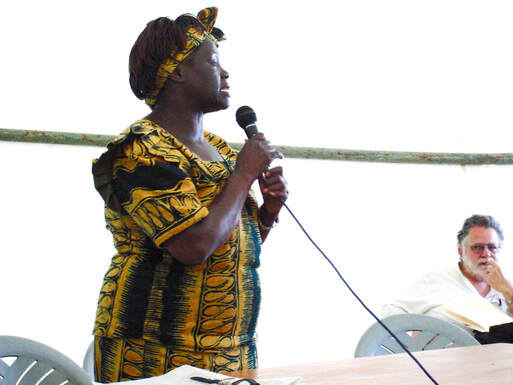 Wangari Maathai, Wikimedia Commons
Wangari Maathai, Wikimedia Commons
Women and Climate Change
The planet is warming. Climate change is defined as long-term, large-scale changes in temperature and weather patterns. Scientists have found that today our planet is around 1.1C (1.8F) warmer than it was in the late 19 th Century, and that warming has been caused by human activities. A changing climate is already impacting agriculture, economic productivity, health, and migration across the world. When people are forced to travel because their homes or their livelihoods have been destroyed by climate events, it is called climate migration.
Climate migration affects women and men, but often in different ways. For example, when changes in the climate decrease agricultural productivity, rural families are less able to feed themselves or make a living. In these circumstances, it is more common for men to travel to cities to find jobs. Women, however, are less able to migrate to new opportunities or safer environments because they are more likely to be responsible for taking care of children or ailing family members. Additionally, women on average have less money and are therefore less able to adjust to a changing climate, which might include buying air conditioning units or adopting new farming technologies. Climate change is also likely to increase the hours of unpaid care labor that women must do, since health services and social services are expected to be
impacted by severe weather events.
But women are not just victims. All over the world have also taken up the fight against climate change. In 1977, Kenyan activity Wangari Maathai founded the Green Belt Movement, an indigenous grassroots organization that empowers women through planting trees. Trees can absorb carbon dioxide, a major greenhouse gas that causes climate change, and so one key solution to a changing climate is to protect the world’s forests. For her "contribution to sustainable development, democracy and peace," Wangari Maathai won the Nobel Peace Prize in 2004, becoming the first African woman to do so.
However, to solve a global problem, we need global solutions. In 2010, Costa Rican diplomat Christiana Figueres was appointed Executive Secretary of the United Nations Framework Convention on Climate Change, otherwise known as the UNFCCC. The UNFCCC is responsible for the annual climate conferences in which all countries try to work together to solve climate change. For six years, Christiana Figueres worked to bring the nations of the world together, eventually succeeding in the adoption of the 2015 Paris Agreement, through which countries agree to work together to keep warming below 2 °C (3.6 °F).
Since then, young women have taken center stage to keep countries honest about their commitments. In 2018, at just 15 years old, Swedish activist Greta Thunberg began her Skolstrejk för klimatet (School Strike for Climate), which has since grown into a global youth movement in which students skip school on Fridays to attend demonstrations to pressure governments to take climate action. In Uganda, a country already facing rising temperatures, activist Vanessa Nakate initiated her own Fridays For Future strike in 2019, protesting outside of the Parliament of Uganda. She has since founded the Rise up Climate Movement to raise the voices of African climate activists as well as spearheaded a campaign to save Congo’s rainforests. Whether planting trees, building coalitions, or raising their voices, you can find women at the forefront of fighting climate change.
The planet is warming. Climate change is defined as long-term, large-scale changes in temperature and weather patterns. Scientists have found that today our planet is around 1.1C (1.8F) warmer than it was in the late 19 th Century, and that warming has been caused by human activities. A changing climate is already impacting agriculture, economic productivity, health, and migration across the world. When people are forced to travel because their homes or their livelihoods have been destroyed by climate events, it is called climate migration.
Climate migration affects women and men, but often in different ways. For example, when changes in the climate decrease agricultural productivity, rural families are less able to feed themselves or make a living. In these circumstances, it is more common for men to travel to cities to find jobs. Women, however, are less able to migrate to new opportunities or safer environments because they are more likely to be responsible for taking care of children or ailing family members. Additionally, women on average have less money and are therefore less able to adjust to a changing climate, which might include buying air conditioning units or adopting new farming technologies. Climate change is also likely to increase the hours of unpaid care labor that women must do, since health services and social services are expected to be
impacted by severe weather events.
But women are not just victims. All over the world have also taken up the fight against climate change. In 1977, Kenyan activity Wangari Maathai founded the Green Belt Movement, an indigenous grassroots organization that empowers women through planting trees. Trees can absorb carbon dioxide, a major greenhouse gas that causes climate change, and so one key solution to a changing climate is to protect the world’s forests. For her "contribution to sustainable development, democracy and peace," Wangari Maathai won the Nobel Peace Prize in 2004, becoming the first African woman to do so.
However, to solve a global problem, we need global solutions. In 2010, Costa Rican diplomat Christiana Figueres was appointed Executive Secretary of the United Nations Framework Convention on Climate Change, otherwise known as the UNFCCC. The UNFCCC is responsible for the annual climate conferences in which all countries try to work together to solve climate change. For six years, Christiana Figueres worked to bring the nations of the world together, eventually succeeding in the adoption of the 2015 Paris Agreement, through which countries agree to work together to keep warming below 2 °C (3.6 °F).
Since then, young women have taken center stage to keep countries honest about their commitments. In 2018, at just 15 years old, Swedish activist Greta Thunberg began her Skolstrejk för klimatet (School Strike for Climate), which has since grown into a global youth movement in which students skip school on Fridays to attend demonstrations to pressure governments to take climate action. In Uganda, a country already facing rising temperatures, activist Vanessa Nakate initiated her own Fridays For Future strike in 2019, protesting outside of the Parliament of Uganda. She has since founded the Rise up Climate Movement to raise the voices of African climate activists as well as spearheaded a campaign to save Congo’s rainforests. Whether planting trees, building coalitions, or raising their voices, you can find women at the forefront of fighting climate change.
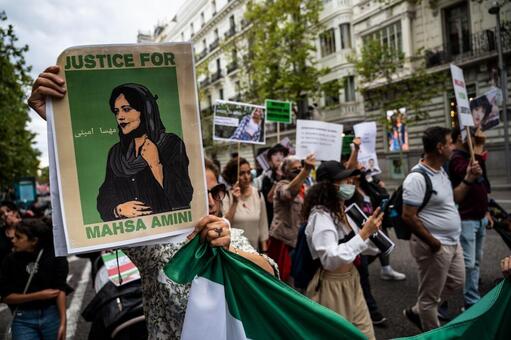 Mahsa Amini Protest, Alamy Stock Photo
Mahsa Amini Protest, Alamy Stock Photo
Challenges for Women Today
Many women still face significant obstacles in exercising their basic freedoms, including the right to vote. In Syria, for example, women are effectively excluded from political engagement, including the ongoing peace process. In certain areas of Pakistan, patriarchal customs are used to prevent women from voting, despite it being their constitutional right. Afghanistan has introduced mandatory photo screening at polling stations, making it difficult for women in conservative areas to vote, as they traditionally cover their faces in public. The USA still has not passed the Equal Rights Amendment which guarantees equal legal rights for all American citizens regardless of sex.
Amnesty International advocates for the effective participation of all women in the political process, striving for gender equality. Sexual and reproductive rights are an integral part of these efforts. Every woman and girl should have the right to make decisions about their own body. This includes equal access to health services like contraception and safe abortions, the ability to choose if, when, and whom to marry, and the freedom to decide if they want to have children, as well as how many and with whom.
Unfortunately, there is still a long way to go to ensure these rights for all women. Access to safe and legal abortions remains limited in many parts of the world, forcing individuals to make risky choices or face legal consequences. Organizations like the UN, Amnesty International, and other women’s rights groups have campaigned for changes to strict abortion laws in countries like Argentina, Ireland, Northern Ireland, Poland, and South Korea, achieving significant progress in some cases.
Freedom of movement, a fundamental right, is still restricted for many women. In some places, women may not have their own passports or need permission from a male guardian to travel. Although Saudi Arabia recently lifted the ban on women driving, women's rights activists advocating for their rights continue to face persecution and detention by the authorities.
One other major issue facing women globally is the policing of their sexuality. For example, forced marriage is particularly problematic in Burkina Faso. Usually young girls are married off to older men without their consent. In parts of West Africa and the Horn of Africa female genital mutilation continues to be a serious problem. Practices range from cutting the clitoris, to cutting and sewing up the vulva to create a small opening to the vagina. . Women elders are often in charge of the practice which is often part of puberty rights. The practice is rooted in cultural associations around the need to limit women’s desire as well as the belief that it is required by religion. T In many parts of Southern Africa, confusion around sexual consent and limited access to sexual health services have left women and girls vulnerable to unwanted pregnancies and higher risks of HIV infection. In Jordan, women’s autonomy is threatened by an oppressive male "guardianship" system that restricts women's freedoms and subjects them to degrading "virginity tests." In Iran, women are subjected to a morality police that enforces female chastity and conservative dress codes. In the USA, the overturning of Roe v Wade has also led to increasing state laws that limit women’s access to safe healthcare including abortion.
Women are of course fighting back against these policies. Women and their allies in Iran made history when they rose up against the government in 2022 after Masa Amini was killed in police custody for improperly wearing her hijab, or head covering. Following the reports of this incident, protests erupted across Iran, particularly led by women who tore off their hijabs and adopted a rallying cry of "women, life, freedom."
What started as a protest against the mistreatment of women by the regime has evolved into a larger movement calling for regime change. Amini's death has become a symbol for freedom globally, with her name transformed into a hashtag used millions of times. This protest challenges an entrenched regime that legally treats women as second-class citizens, with discriminatory laws established after the 1979 Islamic Revolution.
Amini's significance lies in being an ordinary woman, making her relatable to many, not an activist. Her death galvanized the Iranian people and drew international attention, resulting in massive protests against compulsory hijab rules. Amini's Kurdish ethnicity played a role, as the Kurdish community turned her funeral into widespread protests. Despite Amini not being the first to die in the custody of Iran's Revolutionary Guard, her ordinary life made her a tangible symbol for countless families who have faced harassment or violence by the morality police.
The protests in Iran have faced a brutal crackdown, with hundreds reported dead and widespread human rights violations. The international community, including the United Nations Human Rights Council, has initiated investigations into these alleged abuses. The hope is that the support from the global community will push for genuine reform in Iran. However, concerns persist that the regime might resort to superficial changes without addressing deeper issues. Despite challenges, Iranian women continue their fight for reform, fueled by the sacrifice of individuals like Mahsa Amini.
Many women still face significant obstacles in exercising their basic freedoms, including the right to vote. In Syria, for example, women are effectively excluded from political engagement, including the ongoing peace process. In certain areas of Pakistan, patriarchal customs are used to prevent women from voting, despite it being their constitutional right. Afghanistan has introduced mandatory photo screening at polling stations, making it difficult for women in conservative areas to vote, as they traditionally cover their faces in public. The USA still has not passed the Equal Rights Amendment which guarantees equal legal rights for all American citizens regardless of sex.
Amnesty International advocates for the effective participation of all women in the political process, striving for gender equality. Sexual and reproductive rights are an integral part of these efforts. Every woman and girl should have the right to make decisions about their own body. This includes equal access to health services like contraception and safe abortions, the ability to choose if, when, and whom to marry, and the freedom to decide if they want to have children, as well as how many and with whom.
Unfortunately, there is still a long way to go to ensure these rights for all women. Access to safe and legal abortions remains limited in many parts of the world, forcing individuals to make risky choices or face legal consequences. Organizations like the UN, Amnesty International, and other women’s rights groups have campaigned for changes to strict abortion laws in countries like Argentina, Ireland, Northern Ireland, Poland, and South Korea, achieving significant progress in some cases.
Freedom of movement, a fundamental right, is still restricted for many women. In some places, women may not have their own passports or need permission from a male guardian to travel. Although Saudi Arabia recently lifted the ban on women driving, women's rights activists advocating for their rights continue to face persecution and detention by the authorities.
One other major issue facing women globally is the policing of their sexuality. For example, forced marriage is particularly problematic in Burkina Faso. Usually young girls are married off to older men without their consent. In parts of West Africa and the Horn of Africa female genital mutilation continues to be a serious problem. Practices range from cutting the clitoris, to cutting and sewing up the vulva to create a small opening to the vagina. . Women elders are often in charge of the practice which is often part of puberty rights. The practice is rooted in cultural associations around the need to limit women’s desire as well as the belief that it is required by religion. T In many parts of Southern Africa, confusion around sexual consent and limited access to sexual health services have left women and girls vulnerable to unwanted pregnancies and higher risks of HIV infection. In Jordan, women’s autonomy is threatened by an oppressive male "guardianship" system that restricts women's freedoms and subjects them to degrading "virginity tests." In Iran, women are subjected to a morality police that enforces female chastity and conservative dress codes. In the USA, the overturning of Roe v Wade has also led to increasing state laws that limit women’s access to safe healthcare including abortion.
Women are of course fighting back against these policies. Women and their allies in Iran made history when they rose up against the government in 2022 after Masa Amini was killed in police custody for improperly wearing her hijab, or head covering. Following the reports of this incident, protests erupted across Iran, particularly led by women who tore off their hijabs and adopted a rallying cry of "women, life, freedom."
What started as a protest against the mistreatment of women by the regime has evolved into a larger movement calling for regime change. Amini's death has become a symbol for freedom globally, with her name transformed into a hashtag used millions of times. This protest challenges an entrenched regime that legally treats women as second-class citizens, with discriminatory laws established after the 1979 Islamic Revolution.
Amini's significance lies in being an ordinary woman, making her relatable to many, not an activist. Her death galvanized the Iranian people and drew international attention, resulting in massive protests against compulsory hijab rules. Amini's Kurdish ethnicity played a role, as the Kurdish community turned her funeral into widespread protests. Despite Amini not being the first to die in the custody of Iran's Revolutionary Guard, her ordinary life made her a tangible symbol for countless families who have faced harassment or violence by the morality police.
The protests in Iran have faced a brutal crackdown, with hundreds reported dead and widespread human rights violations. The international community, including the United Nations Human Rights Council, has initiated investigations into these alleged abuses. The hope is that the support from the global community will push for genuine reform in Iran. However, concerns persist that the regime might resort to superficial changes without addressing deeper issues. Despite challenges, Iranian women continue their fight for reform, fueled by the sacrifice of individuals like Mahsa Amini.
Draw your own conclusions
|
Learn how to teach with inquiry.
Many of these lesson plans were sponsored in part by the Library of Congress Teaching with Primary Sources Eastern Region Program, coordinated by Waynesburg University, the History and Social Studies Education Faculty at Plymouth State University, and the Patrons of the Remedial Herstory Project. |
Lesson Plans from Other Organizations
- This website, Women in World History has primary source based lesson plans on women's history in a whole range of topics. Some are free while others have a cost.
- The Roy Rosenzweig Center for History and New Media has produced recommendations for teaching women's history with primary sources and provided a collection of sources for world history. Check them out!
- The Stanford History Education Group has a number of lesson plans about women in World History.
Unknown: A Report On The State Of Women’s Issues In Post-Communist Transition
In the countries of post-communism transition there are many similarities in the situation of women, despite the fact that these countries have different historical, economic and religious backgrounds and that their totalitarian regimes were also radically different.
The states of the so-called socialist (communist) systems, using their political and social power and propaganda, managed to cover up the depths of the inequalities in gendered opportunities. So, after the transformation, the illusion still remained that equal opportunities for women had already been established. At the same time, society was not prepared for the dramatic changes that occurred in the differences of opportunities (according to age, region, education, etc.)
During the transformation of the economy, women fell out of the labour market in great numbers to find themselves in the household, which did not provide any income for them, or in early retirement. Women's political representation radically decreased, compared to the "statist feminist" era, when their representation was regulated by quota. In the last decade, however, their proportion has increased again, especially at local levels. Non-profit organisations, representing the interests of women, were not strong enough to break through the political walls and realise their interests and programmes in political life, or to give voice to their values in public discourse, despite their strong activities in certain countries.
Therefore, the Parliamentary Assembly recommends to the governments of Central and Eastern Europe a number of measures aimed at improving legal norms on gender equality, the economic status of women in society, as well as their health and social protection.
Magdolna Kósá-Kovács. ‘The Situation of Women in the Countries of Post-Communism Transition’, 9 June 2004. https://assembly.coe.int/nw/xml/XRef/X2H-Xref- ViewHTML.asp?FileID=10366&lang=EN.
Questions:
The states of the so-called socialist (communist) systems, using their political and social power and propaganda, managed to cover up the depths of the inequalities in gendered opportunities. So, after the transformation, the illusion still remained that equal opportunities for women had already been established. At the same time, society was not prepared for the dramatic changes that occurred in the differences of opportunities (according to age, region, education, etc.)
During the transformation of the economy, women fell out of the labour market in great numbers to find themselves in the household, which did not provide any income for them, or in early retirement. Women's political representation radically decreased, compared to the "statist feminist" era, when their representation was regulated by quota. In the last decade, however, their proportion has increased again, especially at local levels. Non-profit organisations, representing the interests of women, were not strong enough to break through the political walls and realise their interests and programmes in political life, or to give voice to their values in public discourse, despite their strong activities in certain countries.
Therefore, the Parliamentary Assembly recommends to the governments of Central and Eastern Europe a number of measures aimed at improving legal norms on gender equality, the economic status of women in society, as well as their health and social protection.
Magdolna Kósá-Kovács. ‘The Situation of Women in the Countries of Post-Communism Transition’, 9 June 2004. https://assembly.coe.int/nw/xml/XRef/X2H-Xref- ViewHTML.asp?FileID=10366&lang=EN.
Questions:
- According to the report, what is the state of women’s issues?
- How have women’s rights transformed since the end of communism?
- What are some suggestions the report makes to improve the situation in post-communist countries?
Slavenka Drakulic: Excerpt from her Speech at the Institute for Human Sciences
Emancipation from above – as I call it – was the main difference between the lives of women under communism and those of women in Western democracies. Emancipatory law was built into the communist legal system, guaranteeing to women all the basic rights –from voting to property ownership, from education to divorce, from equal pay for equal work to the right to control their bodies. But, as Ulf Brunnbauer writes in his 2000 essay From equality without democracy to democracy without equality?:
“Proclamations of gender equality never corresponded to social reality. Patriarchal values and structures were not eradicated, but the ‘family patriarch’ was replaced by the authoritarian state – emancipation was not an end in itself, but an instrument for wider political goals, as defined by the party.”The formal equality of women in the communist world was observed mostly in public life and in institutions. The private sphere, on the other hand, was dominated by male chauvinism. This meant a lot of unreported domestic violence, for example. It also meant that men usually had no obligations at home, which left women with less time for themselves. It was not only the lack of freedom – and time – that prevented women fighting for changes but, more importantly, a lack of belief that change was necessary. Someone else up there was in charge of thinking about that for you. And because change came from the powers that be, women were made to believe there was no need for change or room for improvement.
If, however, there were any minor problems resulting from women’s specific needs, then
there were women’s organizations that were supposed to take care of them. However, these
were only instruments of communist party power and were concerned less with women and
their needs and more with ideology. Feminist consciousness didn’t exist. Since women were
emancipated, there was no need for a discussion about women’s rights, so the argument went. It
was as if women lived in an ideal world, but were not fully aware of it, or failed to appreciate the
fact. And those who tried to enlighten them about the real situation were seen as “suspicious
elements”. Women who attempted to publically discuss feminism in Yugoslavia in the 1980s
were accused by the authorities of “importing foreign, bourgeois ideas”.
At that time, Eastern European women speaking publicly would typically introduce
themselves by saying “I am not a feminist, but...” Of course, they were afraid of being ridiculed.
Today, one reads that numerous feminist NGOs were formed in Eastern Europe shortly after
1989, but that was not at all my experience. During my travels for the magazine Ms., trying to
find feminists was like looking for a needle in a haystack. There were good reasons for this. For a
long time, even after 1989, women in former communist countries did not want to be identified
as feminists, even if they were. If anything, to be a feminist was considered to be a kind of a
dissident. Prejudices against Western, and especially American feminists were spread by the
press; not only were they men-haters too ugly to find a husband, but they were also burning
bras!
The post-communist revival of conservative values, nationalism and religion is having an
effect on the behaviour of women not only in my small country. Their passivity and disinterest is
not hard to understand. When everything around you is changing so dramatically, then you
tend not to embrace the new circumstances, but to cling to habits, values and ideas that were
there before –before communism. Unfortunately, this means a radical backlash, the return to a
feudal value system. After the collapse of communism, most countries in the region experienced
a renaissance of nationalism and religion – precisely the two things that were suppressed under
communism. It was all that remained from the pre-communist past. Patriarchy, which seemed to
have disappeared, reared its head again, looking healthier than ever. Patriarchy after Patriarchy –
as Karl Kaser wrote. But is it only temporary?
So, for women in Eastern Europe, the freedom regained in 1989 has brought unexpected
limitations on economic, social and even reproductive rights. Women were hit by cuts in public
spending and seen as an inferior category of employee, causing mass female unemployment.
Poverty was feminized. With the political focus on economic transformation and the building of
democratic structures, women’s rights weren’t a top priority. As a result, fewer and fewer
women worked (although we now know that many, between 30 to 50 %, were part of the
informal economy). More and more stayed at home, avoiding politics and public life, being
persuaded that this was the right thing to do.
Drakulic, Slavenka., “How Women Survived Post-Communism (and didn’t Laugh)” (speech, Vienna, Austria, May 29 2015), Institute for Human Sciences. https://www.iwm.at/transit-online/how- women-survived-post-communism-and-didnt-laugh.
Questions:
“Proclamations of gender equality never corresponded to social reality. Patriarchal values and structures were not eradicated, but the ‘family patriarch’ was replaced by the authoritarian state – emancipation was not an end in itself, but an instrument for wider political goals, as defined by the party.”The formal equality of women in the communist world was observed mostly in public life and in institutions. The private sphere, on the other hand, was dominated by male chauvinism. This meant a lot of unreported domestic violence, for example. It also meant that men usually had no obligations at home, which left women with less time for themselves. It was not only the lack of freedom – and time – that prevented women fighting for changes but, more importantly, a lack of belief that change was necessary. Someone else up there was in charge of thinking about that for you. And because change came from the powers that be, women were made to believe there was no need for change or room for improvement.
If, however, there were any minor problems resulting from women’s specific needs, then
there were women’s organizations that were supposed to take care of them. However, these
were only instruments of communist party power and were concerned less with women and
their needs and more with ideology. Feminist consciousness didn’t exist. Since women were
emancipated, there was no need for a discussion about women’s rights, so the argument went. It
was as if women lived in an ideal world, but were not fully aware of it, or failed to appreciate the
fact. And those who tried to enlighten them about the real situation were seen as “suspicious
elements”. Women who attempted to publically discuss feminism in Yugoslavia in the 1980s
were accused by the authorities of “importing foreign, bourgeois ideas”.
At that time, Eastern European women speaking publicly would typically introduce
themselves by saying “I am not a feminist, but...” Of course, they were afraid of being ridiculed.
Today, one reads that numerous feminist NGOs were formed in Eastern Europe shortly after
1989, but that was not at all my experience. During my travels for the magazine Ms., trying to
find feminists was like looking for a needle in a haystack. There were good reasons for this. For a
long time, even after 1989, women in former communist countries did not want to be identified
as feminists, even if they were. If anything, to be a feminist was considered to be a kind of a
dissident. Prejudices against Western, and especially American feminists were spread by the
press; not only were they men-haters too ugly to find a husband, but they were also burning
bras!
The post-communist revival of conservative values, nationalism and religion is having an
effect on the behaviour of women not only in my small country. Their passivity and disinterest is
not hard to understand. When everything around you is changing so dramatically, then you
tend not to embrace the new circumstances, but to cling to habits, values and ideas that were
there before –before communism. Unfortunately, this means a radical backlash, the return to a
feudal value system. After the collapse of communism, most countries in the region experienced
a renaissance of nationalism and religion – precisely the two things that were suppressed under
communism. It was all that remained from the pre-communist past. Patriarchy, which seemed to
have disappeared, reared its head again, looking healthier than ever. Patriarchy after Patriarchy –
as Karl Kaser wrote. But is it only temporary?
So, for women in Eastern Europe, the freedom regained in 1989 has brought unexpected
limitations on economic, social and even reproductive rights. Women were hit by cuts in public
spending and seen as an inferior category of employee, causing mass female unemployment.
Poverty was feminized. With the political focus on economic transformation and the building of
democratic structures, women’s rights weren’t a top priority. As a result, fewer and fewer
women worked (although we now know that many, between 30 to 50 %, were part of the
informal economy). More and more stayed at home, avoiding politics and public life, being
persuaded that this was the right thing to do.
Drakulic, Slavenka., “How Women Survived Post-Communism (and didn’t Laugh)” (speech, Vienna, Austria, May 29 2015), Institute for Human Sciences. https://www.iwm.at/transit-online/how- women-survived-post-communism-and-didnt-laugh.
Questions:
- What does Slavenka Drakulic claim is the main difference between the lives of women in western societies and communist ones?
- What were some key similarities and differences between attitudes towards women’s issues in western democratic societies and in eastern european societies at the time?
- According to Drakulic, why was there a revival in conservative values after communism?
- What does this speech say about the environment towards women’s rights in eastern europe after communism?
Le Browne: Her Experience in the Diem Regime
Le Lieu Browne, a Vietnamese woman educated in France and married to an American journalist, recalls her mixed feelings about her experience working for the Diem regime.
I grew up in Ben Tre in the Mekong Delta, which was reputed to be a stronghold of Communist sympathizers. The French controlled big towns while the Viet Minh controlled the countryside. When the French tried to occupy Ben Tre with their legionnaires and Moroccans and Nigerans they were brutal. But so were the Viet Minh. If they found civil servants or "pro government elements" they took them away and we never heard from them again....
About half the students in my high school were pro-Viet Minh. They organized demonstrations and strikes which constantly closed down the school. My mother worried about our education and decided to send me, along with my twin brothers, to France.... When I returned in 1959 I worked for the Ministry of Information....I worked there for three years but I wasn't happy and wanted to get out....I strongly believed in freedom and suddenly we were ordered to wear uniforms to work and go to political meetings. It sounded to me more like Communism than democracy....
After the coup against Diem, the military generals competed with one another to take power and there was one coup after another. These Vietnamese generals had no experience in administration. They were even more corrupt than Diem...It wasn't good to have generals as presidents. They gave me no hope. But the American buildup also left me skeptical. If the French who colonized our country for a century could not win our support, how could the Americans, the newcomers with a different culture and language, hope to win the war against the Communists? We seemed to return to the situation in the fifties in which the government controlled the cities and the Viet Cong controlled the countryside. Corruption and police harassment made people distrust the government and sympathize more with the Viet Cong. But still I didn't think the Viet Cong would win. I just thought that the war would go on forever.
Appy G, Christian. Interview with Le Lieu Browne.“A South Vietnamese Woman Recalls Her Experience in the Diem Regime,” SHEC: Resources for Teachers.
Questions:
I grew up in Ben Tre in the Mekong Delta, which was reputed to be a stronghold of Communist sympathizers. The French controlled big towns while the Viet Minh controlled the countryside. When the French tried to occupy Ben Tre with their legionnaires and Moroccans and Nigerans they were brutal. But so were the Viet Minh. If they found civil servants or "pro government elements" they took them away and we never heard from them again....
About half the students in my high school were pro-Viet Minh. They organized demonstrations and strikes which constantly closed down the school. My mother worried about our education and decided to send me, along with my twin brothers, to France.... When I returned in 1959 I worked for the Ministry of Information....I worked there for three years but I wasn't happy and wanted to get out....I strongly believed in freedom and suddenly we were ordered to wear uniforms to work and go to political meetings. It sounded to me more like Communism than democracy....
After the coup against Diem, the military generals competed with one another to take power and there was one coup after another. These Vietnamese generals had no experience in administration. They were even more corrupt than Diem...It wasn't good to have generals as presidents. They gave me no hope. But the American buildup also left me skeptical. If the French who colonized our country for a century could not win our support, how could the Americans, the newcomers with a different culture and language, hope to win the war against the Communists? We seemed to return to the situation in the fifties in which the government controlled the cities and the Viet Cong controlled the countryside. Corruption and police harassment made people distrust the government and sympathize more with the Viet Cong. But still I didn't think the Viet Cong would win. I just thought that the war would go on forever.
Appy G, Christian. Interview with Le Lieu Browne.“A South Vietnamese Woman Recalls Her Experience in the Diem Regime,” SHEC: Resources for Teachers.
Questions:
- What kind of source is this?
- How might her background impact her biases?
- What were her opinions about the war?
Truong My Hoa: Her Recollection of Her Revolutionary Activities
Truong My Hoa, a Vietnamese woman from a "revolutionary tradition" and later a high-ranking member of the Communist Party, recalls her experiences as a young revolutionary and subsequent imprisonment by the South Vietnamese government.
I was born to a revolutionary family and inherited a revolutionary tradition. My hometown of Tien Giang was a revolutionary hotbed. My parents had taken part in the resistance war against the French for which both were arrested and imprisoned. My brothers and sisters and I were imprisoned during the American War. Altogether my family spent half a century in jail.
In 1954, my father regrouped to the North in compliance with the Geneva Accords. My mother remained in the South with the children, and like everybody else, she thought that general elections would be implemented two years later and the country, as well as all the families, would be reunited. However, the puppet government of Ngo Dinh Diem unilaterally carried out a bloody war, supported by American imperialists.
I began to participate in the revolution at age fifteen, in 1960, when the Saigon regime took its guillotine throughout the South to behead patriotic revolutionaries and even non- revolutionary common people. I realized in my heart that we had no alternative but to struggle against the Diem government and its henchmen. That was the only way we could achieve peace, independence, and unification. Because of Diem’s terror in the countryside, my mother took us to Saigon. There, right in the gorge of the puppet regime, I became a revolutionary. I participated in propaganda aimed at mobilizing high school and college students. We urged them to resist military conscription and the invasion of our country by American imperialists.
I was arrested on April 15, 1964. The Saigon Military Tribunal accused me of disrupting order and political stability. I was officially sentenced to eighteen months of confinement, but they kept prolonging the sentence and held me in prison for eleven years. I was released on March 7, 1975....
Over the years I underwent a lot of interrogation and torture.... Always they asked me if we were going to talk, or not, and they slandered our political loyalties. They tried to make us salute their flag and condemn Communism. They tried to make us say, 'Down with President Ho!' And, of course, they wanted to know about our revolutionary organizations and bases. But we would rather die than bow to their will.
Appy G, Christian. Interview with Truong My Hoa.“A Vietnamese Woman Recalls Her Revolutionary Activities,” SHEC: Resources for Teachers.
Questions:
I was born to a revolutionary family and inherited a revolutionary tradition. My hometown of Tien Giang was a revolutionary hotbed. My parents had taken part in the resistance war against the French for which both were arrested and imprisoned. My brothers and sisters and I were imprisoned during the American War. Altogether my family spent half a century in jail.
In 1954, my father regrouped to the North in compliance with the Geneva Accords. My mother remained in the South with the children, and like everybody else, she thought that general elections would be implemented two years later and the country, as well as all the families, would be reunited. However, the puppet government of Ngo Dinh Diem unilaterally carried out a bloody war, supported by American imperialists.
I began to participate in the revolution at age fifteen, in 1960, when the Saigon regime took its guillotine throughout the South to behead patriotic revolutionaries and even non- revolutionary common people. I realized in my heart that we had no alternative but to struggle against the Diem government and its henchmen. That was the only way we could achieve peace, independence, and unification. Because of Diem’s terror in the countryside, my mother took us to Saigon. There, right in the gorge of the puppet regime, I became a revolutionary. I participated in propaganda aimed at mobilizing high school and college students. We urged them to resist military conscription and the invasion of our country by American imperialists.
I was arrested on April 15, 1964. The Saigon Military Tribunal accused me of disrupting order and political stability. I was officially sentenced to eighteen months of confinement, but they kept prolonging the sentence and held me in prison for eleven years. I was released on March 7, 1975....
Over the years I underwent a lot of interrogation and torture.... Always they asked me if we were going to talk, or not, and they slandered our political loyalties. They tried to make us salute their flag and condemn Communism. They tried to make us say, 'Down with President Ho!' And, of course, they wanted to know about our revolutionary organizations and bases. But we would rather die than bow to their will.
Appy G, Christian. Interview with Truong My Hoa.“A Vietnamese Woman Recalls Her Revolutionary Activities,” SHEC: Resources for Teachers.
Questions:
- What kind of source is this?
- What were her opinions about the war?
Unknown: Radical Women in Latin America
“There was more equality in the mountains than after triumph. We shared what we had. We shared the cooking duties, the fun cleaning, the leadership responsibilities . . . . There wasn’t gender consciousness in the guerilla forces, what there was was an incredible solidarity. At any time men as much as women could be killed. Later a machista life began, which is Nicaraguan culture. They returned to what they considered normal life”
Karen Kampwirth and Victoria González-Rivera. Radical Women in Latin America: Left and Right. Penn State University Press, 2001. https://doi.org/10.5325/j.ctt7v5zf.
Questions:
Karen Kampwirth and Victoria González-Rivera. Radical Women in Latin America: Left and Right. Penn State University Press, 2001. https://doi.org/10.5325/j.ctt7v5zf.
Questions:
- Based on the excerpt, how were women treated in guerilla groups?
- Did women’s position in society change after the FSLN?
Za kommunisticheskoe Prosveshchenie: School No. 130 Follows its Own Law
In the Soviet Union, the rights of mothers and children are strictly protected by the law. For example, in addition to a four month maternity leave, every working mother has the right to take breaks during work for nursing until the infant reaches the age of nine months. But it seems that the administration of school 130 in the Soviet district of Moscow considers that this rule does not apply to its school.
I have worked as a teacher for nine years, and am in my first year at school 130. Returning from maternity leave, I placed my infant in a nursery school. At first, I was able to nurse him regularly, every three hours. But because I could not nurse my infant during the break between classes (20 minutes), I was always late by 10-15 minutes.
These minutes of tardiness were not absences, because I have the right to an additional half-hour besides these 20 minutes for nursing my infant. But the head of instruction and the school director, after repeated warnings, have ordered me to either stop nursing my infant or quit working in the school, because they consider that the class (42 pupils) cannot and should not be left without a teacher for even a minute.
I completely agree with the orders of the head of instruction and the school director that pupils should not be left without a leader for even the shortest amount of time. But it does not follow from this that I, as a teacher-mother, am not able to lead the children in lessons.
This unequal battle has resulted in the victory of the school administration. Despite the orders of a doctors, I had to stop nursing my infant and switch to artificial food, which quickly had a negative effect on the child’s health.
I consider that the approach to me taken by the head of instruction and the school director demonstrates an unwillingness to let a teacher-mother have normal conditions for bringing up a healthy infant. It is possible to find a solution to this situation that does not harm the children and does not violate Soviet law by providing a substitute during this break or by drafting a schedule so that the pupils have another teacher after three hours. I love the work of teaching and do not want to give it up because of this temporary condition. In the current situation, I demand only that the administration of school 130 provide a little flexibility and human sympathy, so that I can continue working and bringing up my infant normally.
For Communist Enlightenment. ‘School No. 130 Follows Its Own Law’, 6 February 1937. https://chnm.gmu.edu/wwh/modules/lesson11/pdfs/primarysourcepacket.pdf.
Questions:
1. What problems did the article outline that the teacher had to go through?
I have worked as a teacher for nine years, and am in my first year at school 130. Returning from maternity leave, I placed my infant in a nursery school. At first, I was able to nurse him regularly, every three hours. But because I could not nurse my infant during the break between classes (20 minutes), I was always late by 10-15 minutes.
These minutes of tardiness were not absences, because I have the right to an additional half-hour besides these 20 minutes for nursing my infant. But the head of instruction and the school director, after repeated warnings, have ordered me to either stop nursing my infant or quit working in the school, because they consider that the class (42 pupils) cannot and should not be left without a teacher for even a minute.
I completely agree with the orders of the head of instruction and the school director that pupils should not be left without a leader for even the shortest amount of time. But it does not follow from this that I, as a teacher-mother, am not able to lead the children in lessons.
This unequal battle has resulted in the victory of the school administration. Despite the orders of a doctors, I had to stop nursing my infant and switch to artificial food, which quickly had a negative effect on the child’s health.
I consider that the approach to me taken by the head of instruction and the school director demonstrates an unwillingness to let a teacher-mother have normal conditions for bringing up a healthy infant. It is possible to find a solution to this situation that does not harm the children and does not violate Soviet law by providing a substitute during this break or by drafting a schedule so that the pupils have another teacher after three hours. I love the work of teaching and do not want to give it up because of this temporary condition. In the current situation, I demand only that the administration of school 130 provide a little flexibility and human sympathy, so that I can continue working and bringing up my infant normally.
For Communist Enlightenment. ‘School No. 130 Follows Its Own Law’, 6 February 1937. https://chnm.gmu.edu/wwh/modules/lesson11/pdfs/primarysourcepacket.pdf.
Questions:
1. What problems did the article outline that the teacher had to go through?
Vostoka Pravada: Defending the Rights of a Soviet Woman
In the collective farm “Communism,” in the Kokandskii distrct [Uzbek SSR], a determined struggle between Milidzhan Gafurovyi and his wife Rakhmalia-bibi Rustamova has been going on for the last few years. Rustamova threw off her veil, eliminated her illiteracy, works like a Stakhanovite in the collective farm, and was elected to serve as a brigade leader. With all his strength, Gafurov obstructed the political development of his wife by persecuting her and more than once threatening to kill her.
As an activist and public organizer, Rustmova was nominated and actively participated as a member of the electoral commission for the elections to the Supreme Soviet of the USSR. Gafurov began to persecute his wife even more strongly, and forced her to leave the collective farm and stop her work in the electoral commission.
Realizing his powerlessness to force his wife to submit to his influence, Gafurov decided to commit a terrorist act. The first time, he tried to kill his wife at night in their apartment, but Rustamova saved herself by running away. The second time, during the drying of the cotton crop, Gafurov again attacked his wife with a knife. This time, she was saved by the intervention of other collective farmers.
The third time, December 12, 1937, on the election day for the Supreme Soviet of the USSR, when Rustamova as a member of the electoral commission and busy with work on the elections, Gafurov forced his way into the village soviet and demanded that Rustomova immediately quit everything and return home. Rustamova refused and went into the electoral commission’s room. Following after her, Gafurov attacked his wife with a knife, but was restrained.
This matter was investigated on June 11-12 of this year [1938] in the village of ArzykTepe, in the presence of the collective farm’s Military tribunal SAVO composed of acting military jurist second rank comrade Pensin and court members lieutenants Anisenko and Spichkin.
The court determined that Gafurov is a descendant of a kulak-bai family, was a merchant, and has for the last few years lived on the income of his wife. The court sentenced Gafurov to be executed. The collective farm members attending the trial greeted the sentence with expressions of satisfaction.
Pravada Vostoka. ‘Defending the Rights of a Soviet Woman’, 22 June 1938.
Questions:
As an activist and public organizer, Rustmova was nominated and actively participated as a member of the electoral commission for the elections to the Supreme Soviet of the USSR. Gafurov began to persecute his wife even more strongly, and forced her to leave the collective farm and stop her work in the electoral commission.
Realizing his powerlessness to force his wife to submit to his influence, Gafurov decided to commit a terrorist act. The first time, he tried to kill his wife at night in their apartment, but Rustamova saved herself by running away. The second time, during the drying of the cotton crop, Gafurov again attacked his wife with a knife. This time, she was saved by the intervention of other collective farmers.
The third time, December 12, 1937, on the election day for the Supreme Soviet of the USSR, when Rustamova as a member of the electoral commission and busy with work on the elections, Gafurov forced his way into the village soviet and demanded that Rustomova immediately quit everything and return home. Rustamova refused and went into the electoral commission’s room. Following after her, Gafurov attacked his wife with a knife, but was restrained.
This matter was investigated on June 11-12 of this year [1938] in the village of ArzykTepe, in the presence of the collective farm’s Military tribunal SAVO composed of acting military jurist second rank comrade Pensin and court members lieutenants Anisenko and Spichkin.
The court determined that Gafurov is a descendant of a kulak-bai family, was a merchant, and has for the last few years lived on the income of his wife. The court sentenced Gafurov to be executed. The collective farm members attending the trial greeted the sentence with expressions of satisfaction.
Pravada Vostoka. ‘Defending the Rights of a Soviet Woman’, 22 June 1938.
Questions:
- What does the newspaper articulate about how women are treated socially?
- Were women protected against discrimination?
Remedial Herstory Editors. "28. 1950-1990 DECOLONIZING WOMEN." The Remedial Herstory Project. June 23, 2024. www.remedialherstory.com.
Primary AUTHOR: |
Kelsie Brook Eckert
|
Primary Reviewer |
Dr. Barbara Tischler
Jacqui Nelson |
Consulting Team |
Editors |
|
Kelsie Brook Eckert, Project Director
Coordinator of Social Studies Education at Plymouth State University Dr. Nancy Locklin-Sofer, Consultant Professor of History at Maryville College. Chloe Gardner, Consultant PhD Candidate in Religious Studies at Edinburgh University Dr. Whitney Howarth, Consultant Former Professor of History at Plymouth State University Jacqui Nelson, Consultant Teaching Lecturer of Military History at Plymouth State University Maria Concepcion Marquez Sandoval PhD Candidate in History at Arizona University |
Amy Flanders
Humanities Teacher, Moultonborough Academy ReviewersAncient:
Dr. Kristin Heineman Professor of History at Colorado State University Dr. Bonnie Rock-McCutcheon Professor of History at Wilson College Sarah Stone PhD Candidate in Religious Studies at Edinburgh University Medieval: Dr. Katherine Koh Professor of History at La Sierra University Dr. Jonathan Couser Professor of History at Plymouth State University Dr. Shahla Haeri Professor of History at Boston University Lauren Cole PhD Candidate in History at Northwestern University Modern: Dr. Barbara Tischler Supervisor for Hunter College Dr. Pamela Scully Professor of Women’s, Gender, and Sexuality Studies and African Studies at Emory University |
|
Black French Women and the Struggle for Equality, 1848–2016 explores how black women in France itself, the French Caribbean, Gorée, Dakar, Rufisque, and Saint-Louis experienced and reacted to French colonialism and how gendered readings of colonization, decolonization, and social movements cast new light on the history of French colonization and of black France.
Women, Empires, and Body Politics at the United Nations, 1946–1975 tells the story of how women’s bodies were at the center of the international politics of women’s rights in the postwar period. Giusi Russo focuses on the United Nation Commission on the Status of Women and its multiple interactions with the colonial and postcolonial worlds, showing how—depending on the setting and the inquiry—liberal, imperial, and transnational feminisms could coexist.
Black women living in the French empire played a key role in the decolonial movements of the mid-twentieth century. Thinkers and activists, these women lived lives of commitment and risk that landed them in war zones and concentration camps and saw them declared enemies of the state. Annette K. Joseph-Gabriel mines published writings and untapped archives to reveal the anticolonialist endeavors of seven women.
This book examines how and why Portugal and Spain increasingly engaged with women in their African colonies in the crucial period from the 1950s to the 1970s. It explores the rhetoric of benevolent Iberian colonialism, gendered Westernization, and development for African women as well as actual imperial practices – from forced resettlement to sexual exploitation to promoting domestic skills
In education, journalism, legislative politics, social justice, health, law, and other arenas, Muslim women across Kenya are emerging as leaders in local, national, and international contexts, advancing reforms through their activism. Muslim Women in Postcolonial Kenya draws on extensive interviews with six such women, revealing how their religious and moral beliefs shape reform movements that bridge ethnic divides and foster alliances in service of creating a just, multicultural, multiethnic, and multireligious democratic citizenship.
Post-Mandarin illustrates the significance of the inclusion of modern women in the world of letters: a more democratic system of aesthetic and political representation that gave rise to anticolonial nationalism. This conceptualization of the “post-mandarin” promises to have a significant impact on the fields of literary theory, postcolonial studies, East Asian and Southeast Asian studies, and modernist studies.
|
Imbued with tenderness for her family and a critical view of the challenges facing French North African immigrants, Kaoutar Harchi’s probing account illustrates the deeply personal effects of political issues. Mixed with happy memories of her childhood home in eastern France are ever-present reminders of the dangers from which her parents sought to shield her. When they transfer her to a private, Catholic middle school—out of fear of Arab boys from their working-class neighborhood—Kaoutar grows increasingly conscious of her differences, and her conflicted sense of self.
Oklahoma Choctaw scholar Devon Abbott Mihesuah offers a frank and absorbing look at the complex, evolving identities of American Indigenous women today, their ongoing struggles against a centuries-old legacy of colonial disempowerment, and how they are seen and portrayed by themselves and others.
Despite a recent increase in the productivity and popularity of Indigenous playwrights in Canada, most critical and academic attention has been devoted to the work of male dramatists, leaving female writers on the margins. In Indigenous Women’s Theatre in Canada, Sarah MacKenzie addresses this critical gap by focusing on plays by Indigenous women written and produced in the socio-cultural milieux of twentieth and twenty-first century Canada.
Moving from small Philippine villages of the past to the hurricane-beaten coast of near-future Florida, When the Hibiscus Falls examines the triumphs and sorrows that connect generations of women. Daughters, sisters, mothers, aunties, cousins, and lolas commune with their ancestors and their descendants, mourning what is lost when an older generation dies, celebrating what is gained when we safeguard their legacy for those who come after us.
Indigenous women from the Americas are on the frontlines of activism in battles ranging from environmental protection, cultural and language revitalization and preservation, sovereignty campaigns, sexual violence, and human rights. This book introduces voices of Native activists blazing trails of resistance in new fields of engagement.
First published in 1999.Jyoti Puri draws on post-colonial and feminist theory to focus on how women in current-day India conceptualize their gender and sexuality. She provides a groundbreaking ethnographic study based on fifty-four middle- and upper-class Indian women, ranging from the ages of fifteen to thirty-eight. She argues that these women's narratives are shaped by not only the nation-state, but by transnational processes as well.
In an era marked by atrocities perpetrated on a grand scale, the tragedy of the so-called comfort women—mostly Korean women forced into prostitution by the Japanese army—endures as one of the darkest events of World War II. These women have usually been labeled victims of a war crime, a simplistic view that makes it easy to pin blame on the policies of imperial Japan and therefore easier to consign the episode to a war-torn past. In this revelatory study, C. Sarah Soh provocatively disputes this master narrative.
|
This book presents a new approach to the understanding of non-normative sexuality and gender transgressive modes in South Asia and South Asian diaspora. It reconceives sexual representation from the point of view of the theoretical, political and empirical trajectories of decolonization, provincialization and neoliberalism to look at the role of historical contingency, postcolonial sexual politics and gender and sexual diversity. The volume brings together anthropological, historical, material and political analyses around South Asian sexual politics by exploring a range of themes, including culture, class, ethnicity, identity, intersectionality, migration, borders, diaspora, modernity and cosmopolitanism across various local, regional and global contexts.
Patrice Lumumba s legacy continues to fire the imagination of politicians, activists, and artists. But women have been missing from accounts of the Congo's decolonization. Gender and Decolonization in the Congo: The Legacy of Patrice Lumumba challenges male-centered interpretations of Congolese nationalism and illustrates how generic conventions both reinforced and undercut gender bias in representations of Lumumba and his female contemporaries.
This vibrant history of London in the twentieth century reveals the city as a key site in the development of black internationalism and anticolonialism. Marc Matera shows the significant contributions of people of African descent to London’s rich social and cultural history, masterfully weaving together the stories of many famous historical figures and presenting their quests for personal, professional, and political recognition against the backdrop of a declining British Empire.
In House/Garden/Nation the narratives of five Centro-Caribbean writers illustrate these times of transition: Dulce María Loynáz, from colonial rule to independence in Cuba; Jean Rhys, from colony to commonwealth in Dominica; Simone Schwarz-Bart, from slave to free labor in Guadeloupe; Gioconda Belli, from oligarchic capitalism to social democratic socialism in Nicaragua; and Teresa de la Parra, from independence to modernity in Venezuela. Focusing on the nation as garden, hacienda, or plantation, Rodríguez shows us these writers debating the predicament of women under nation formation from within the confines of marriage and home.
At a time when the situation of women in the Islamic world is of global interest, here is a study that unlocks the mystery of why women's fates vary so greatly from one country to another. Mounira M. Charrad analyzes the distinctive nature of Islamic legal codes by placing them in the larger context of state power in various societies. This book will interest readers in the fields of sociology, politics, law, women's studies, postcolonial studies, Middle Eastern studies, Middle Eastern history, French history, and Maghrib studies.
|
|
Yamina Taleb is approaching her seventieth birthday. These days, she strives for a quiet life, grateful to the country that hosts her and her adored family. The closest she gets to drama is scooping ‘revolutionary’ bargains in the form of plastic kitchenware gadgets. But Yamina’s children feel differently about life in Paris. They don’t always fit in, and it hurts. When the Talebs go away together on holiday – not to the motherland, but to a villa-with-pool rental near the Atlantic coast – they come to realize just how strongly family defines our sense of belonging.
|
Adua, an immigrant from Somalia, has lived in Italy nearly forty years. She came seeking freedom from a strict father and an oppressive regime, but her dreams of becoming a film star ended in shame. A searing novel about a young immigrant woman’s dream of finding freedom in Rome and the bittersweet legacies of her African past.
Ante body is a poetics of [un]rest. A project that started as an exploration of how the psychological impacts of migration and complex traumas manifest as autoimmune disease and grew into a critique of the ongoing unjust conditions that brought on the global pandemic. Continuing her use of the invented poetic form, the Arabic, and integrating Fred Moten’s concept of “the ANTE,” Helal creates an elliptical reading experience in which content and form interrogate the inner workings of patriarchy, capitalism, nationalism, and globalism.
|
HOW TO TEACH WITH FILMS:
Remember, teachers want the student to be the historian. What do historians do when they watch films?
- Before they watch, ask students to research the director and producers. These are the source of the information. How will their background and experience likely bias this film?
- Also, ask students to consider the context the film was created in. The film may be about history, but it was made recently. What was going on the year the film was made that could bias the film? In particular, how do you think the gains of feminism will impact the portrayal of the female characters?
- As they watch, ask students to research the historical accuracy of the film. What do online sources say about what the film gets right or wrong?
- Afterward, ask students to describe how the female characters were portrayed and what lessons they got from the film.
- Then, ask students to evaluate this film as a learning tool. Was it helpful to better understand this topic? Did the historical inaccuracies make it unhelpful? Make it clear any informed opinion is valid.
|
|
|
Denial (2016)
Acclaimed writer and historian Deborah E. Lipstadt must battle for historical truth to prove the Holocaust actually occurred when David Irving, a renowned denier, sues her for libel. IMDB |
|
|
In Her Hands (2022)
At 26, Zarifa Ghafari became one of Afghanistan's first female mayors and the youngest to ever hold the position. Filmed over two turbulent years, the film documents her personal battle for survival as her country unravels. IMDB |
|
bibliography
Beal, Frances M. "Double Jeopardy: To Be Black and Female." JSTOR. [https://www.jstor.org/stable/40338758].
Binard, Florence. "The British Women’s Liberation Movement in the 1970s: Redefining the Personal and the Political." Revue Francaise de Civilisation Britannique (French Journal of British Studies). 2017. [https://www.researchgate.net/publication/322164026_The_British_Women's_Liberation_Movement_in_the_1970s_Redefining_the_Personal_and_the_Political].
Chincilla, Norma Stolz. "Women’s Movements in the Americas: Feminism’s Second Wave." North American Conference on Latin America. September 26, 2007. [https://nacla.org/article/women%27s-movements-americas-feminism%27s-second-wave].
Cohen, Sascha. "The Day Women Went on Strike." TIME. August 26, 2015. [https://time.com/4008060/women-strike-equality-1970/].
Colvin, Sarah, and Katharina Karcher, eds. Women. Global Protest Movements and Political Agency: Rethinking the Legacy of 1968. New York: Routledge, 2018.
Drossus, Carin. "The Achievements and Uncertainties of French Feminism." Cairn Info International Volume 2, Number 8. October 2018. [https://www.cairn-int.info/dossiers-2018-8-page-1.htm].
Flakin, Nathaniel. "Red Flag: How Berliners Fought for Abortion Rights in the 1970s." Exberliner.[https://www.exberliner.com/berlin/red-flag-when-berlin-feminists-abortion/]
Gay, Roxanne. "Fifty Years Ago Protesters took on the Miss America Pageant and Electrified the Feminist Movement." Smithsonian. January 2018. [https://www.smithsonianmag.com/history/fifty-years-ago-protestors-took-on-miss-america-pageant-electrified-feminist-movement-180967504/].
Gilmartin, Christina. "Gender in the Formation of a Communist Body Politic." Modern China. 19, no. 3 (1993): 299–329. [https://www.jstor.org/stable/189347].
Goldfarb, Jeffrey C. "Why Is There No Feminism after Communism?" *Social Research* 64, no. 2 (1997): 235–57. [https://www.jstor.org/stable/40971184].
Goodman, Diana. "The untold side of second wave feminism: A multinational, politically diverse movement." Liberation School. [https://www.liberationschool.org/feminism-and-the-mass-movements-1960-1990/].
Jaffe, Naomi and Bernadine Dohrn. "The Look is You." New Left Notes. (18 March 1968): 5.
Lear, Martha Weinbman. "The Second Feminist Movement." The New York Times. (March 10, 1968). [https://timesmachine.nytimes.com/timesmachine/1968/03/10/issue.html].
Little, Becky. "Unbought and Unbossed: Why Shirley Chisholm Ran for President." History. January 12, 2021. [https://www.history.com/news/shirley-chisholm-presidential-campaign-george-wallace].
Little, Becky. "When Feminists Protested Miss America as a Cattle Auction." History. September 6, 2023. [https://www.history.com/news/miss-america-protest-1968].
Mendez, Karla. "Honoring the Revolutionary Feminist Legacy of the Third World Women’s Alliance." Black Women Radicals. [https://www.blackwomenradicals.com/blog-feed/at-the-intersections-of-race-gender-and-class-honouring-the-revolutionary-feminist-legacy-of-the-third-world-womens-alliance].
Michel, Clara. "Unstoppable Voices: How the 1970 Miss World Contest Started a Revolution." Royal Albert Hall (October 15, 2020). [https://www.royalalberthall.com/about-the-hall/news/2020/october/unstoppable-voices-how-the-1970-miss-world-contest-sparked-a-revolution/].
McGrath, Maggie. "Mahsa Amini: The Spark That Ignited A Women-Led Revolution." Forbes (December 6, 2022). [https://www.forbes.com/sites/maggiemcgrath/2022/12/06/mahsa-amini-the-spark-that-ignited-a-women-led-revolution/?sh=3fab5e995c3d].
Napikoski, Linda. "Women’s Strike for Equality." Thought.Co. February 24, 2019. [https://www.thoughtco.com/the-womens-strike-for-equality-3528989].
Rosenstock, Nancy. "Second Wave Feminism: Accomplishments & Lessons." *Against the Current* (March 8, 2021). [https://internationalviewpoint.org/spip.php?article7063].
Shillcock, Francesca. "What Really Happened at the 1970 Miss World Beauty Pageant?" Hello! (8 March 2021). [https://www.hellomagazine.com/film/20210308108439/miss-world-1970-what-really-happened-at-beauty-pageant/].
Stewart, Danielle. "The Women’s Movement in France." Signs, Volume 6, Number 2 (Winter, 1980). [https://www.jstor.org/stable/3173940].
Studer, Brigitte, and Regan Kramer. "Communism and Feminism." Clio: Women, Gender, History 41 (2015): 126–39. [https://www.jstor.org/stable/26273633].
Thorkelson, Eli. "Sexist Anti-Feminism in the French Left.” 1970.
UN Women. "World Conferences on Women." UN Women. N.D. [https://www.unwomen.org/en/how-we-work/intergovernmental-support/world-conferences-on-women].
Willis, Ellen. "Radical Feminism and Feminist Radicalism" in Sohnya Sayres, Anders Stephanson, Stanley Aronowitz, and Fredric Jameson, eds., The `60s Without Apology. Minneapolis: University of Minnesota Press, 1984, 94.
Zaytoun, Kelli, and Judith Ezekiel. "Sisterhood in Movement: Feminist Solidarity in France and the United States." Academia. [https://www.academia.edu/25609390/Sisterhood_in_Movement_Feminist_Solidarity_in_France_and_the_United_States.https://hist259.web.unc.edu/womensliberationmovement/].
Binard, Florence. "The British Women’s Liberation Movement in the 1970s: Redefining the Personal and the Political." Revue Francaise de Civilisation Britannique (French Journal of British Studies). 2017. [https://www.researchgate.net/publication/322164026_The_British_Women's_Liberation_Movement_in_the_1970s_Redefining_the_Personal_and_the_Political].
Chincilla, Norma Stolz. "Women’s Movements in the Americas: Feminism’s Second Wave." North American Conference on Latin America. September 26, 2007. [https://nacla.org/article/women%27s-movements-americas-feminism%27s-second-wave].
Cohen, Sascha. "The Day Women Went on Strike." TIME. August 26, 2015. [https://time.com/4008060/women-strike-equality-1970/].
Colvin, Sarah, and Katharina Karcher, eds. Women. Global Protest Movements and Political Agency: Rethinking the Legacy of 1968. New York: Routledge, 2018.
Drossus, Carin. "The Achievements and Uncertainties of French Feminism." Cairn Info International Volume 2, Number 8. October 2018. [https://www.cairn-int.info/dossiers-2018-8-page-1.htm].
Flakin, Nathaniel. "Red Flag: How Berliners Fought for Abortion Rights in the 1970s." Exberliner.[https://www.exberliner.com/berlin/red-flag-when-berlin-feminists-abortion/]
Gay, Roxanne. "Fifty Years Ago Protesters took on the Miss America Pageant and Electrified the Feminist Movement." Smithsonian. January 2018. [https://www.smithsonianmag.com/history/fifty-years-ago-protestors-took-on-miss-america-pageant-electrified-feminist-movement-180967504/].
Gilmartin, Christina. "Gender in the Formation of a Communist Body Politic." Modern China. 19, no. 3 (1993): 299–329. [https://www.jstor.org/stable/189347].
Goldfarb, Jeffrey C. "Why Is There No Feminism after Communism?" *Social Research* 64, no. 2 (1997): 235–57. [https://www.jstor.org/stable/40971184].
Goodman, Diana. "The untold side of second wave feminism: A multinational, politically diverse movement." Liberation School. [https://www.liberationschool.org/feminism-and-the-mass-movements-1960-1990/].
Jaffe, Naomi and Bernadine Dohrn. "The Look is You." New Left Notes. (18 March 1968): 5.
Lear, Martha Weinbman. "The Second Feminist Movement." The New York Times. (March 10, 1968). [https://timesmachine.nytimes.com/timesmachine/1968/03/10/issue.html].
Little, Becky. "Unbought and Unbossed: Why Shirley Chisholm Ran for President." History. January 12, 2021. [https://www.history.com/news/shirley-chisholm-presidential-campaign-george-wallace].
Little, Becky. "When Feminists Protested Miss America as a Cattle Auction." History. September 6, 2023. [https://www.history.com/news/miss-america-protest-1968].
Mendez, Karla. "Honoring the Revolutionary Feminist Legacy of the Third World Women’s Alliance." Black Women Radicals. [https://www.blackwomenradicals.com/blog-feed/at-the-intersections-of-race-gender-and-class-honouring-the-revolutionary-feminist-legacy-of-the-third-world-womens-alliance].
Michel, Clara. "Unstoppable Voices: How the 1970 Miss World Contest Started a Revolution." Royal Albert Hall (October 15, 2020). [https://www.royalalberthall.com/about-the-hall/news/2020/october/unstoppable-voices-how-the-1970-miss-world-contest-sparked-a-revolution/].
McGrath, Maggie. "Mahsa Amini: The Spark That Ignited A Women-Led Revolution." Forbes (December 6, 2022). [https://www.forbes.com/sites/maggiemcgrath/2022/12/06/mahsa-amini-the-spark-that-ignited-a-women-led-revolution/?sh=3fab5e995c3d].
Napikoski, Linda. "Women’s Strike for Equality." Thought.Co. February 24, 2019. [https://www.thoughtco.com/the-womens-strike-for-equality-3528989].
Rosenstock, Nancy. "Second Wave Feminism: Accomplishments & Lessons." *Against the Current* (March 8, 2021). [https://internationalviewpoint.org/spip.php?article7063].
Shillcock, Francesca. "What Really Happened at the 1970 Miss World Beauty Pageant?" Hello! (8 March 2021). [https://www.hellomagazine.com/film/20210308108439/miss-world-1970-what-really-happened-at-beauty-pageant/].
Stewart, Danielle. "The Women’s Movement in France." Signs, Volume 6, Number 2 (Winter, 1980). [https://www.jstor.org/stable/3173940].
Studer, Brigitte, and Regan Kramer. "Communism and Feminism." Clio: Women, Gender, History 41 (2015): 126–39. [https://www.jstor.org/stable/26273633].
Thorkelson, Eli. "Sexist Anti-Feminism in the French Left.” 1970.
UN Women. "World Conferences on Women." UN Women. N.D. [https://www.unwomen.org/en/how-we-work/intergovernmental-support/world-conferences-on-women].
Willis, Ellen. "Radical Feminism and Feminist Radicalism" in Sohnya Sayres, Anders Stephanson, Stanley Aronowitz, and Fredric Jameson, eds., The `60s Without Apology. Minneapolis: University of Minnesota Press, 1984, 94.
Zaytoun, Kelli, and Judith Ezekiel. "Sisterhood in Movement: Feminist Solidarity in France and the United States." Academia. [https://www.academia.edu/25609390/Sisterhood_in_Movement_Feminist_Solidarity_in_France_and_the_United_States.https://hist259.web.unc.edu/womensliberationmovement/].
